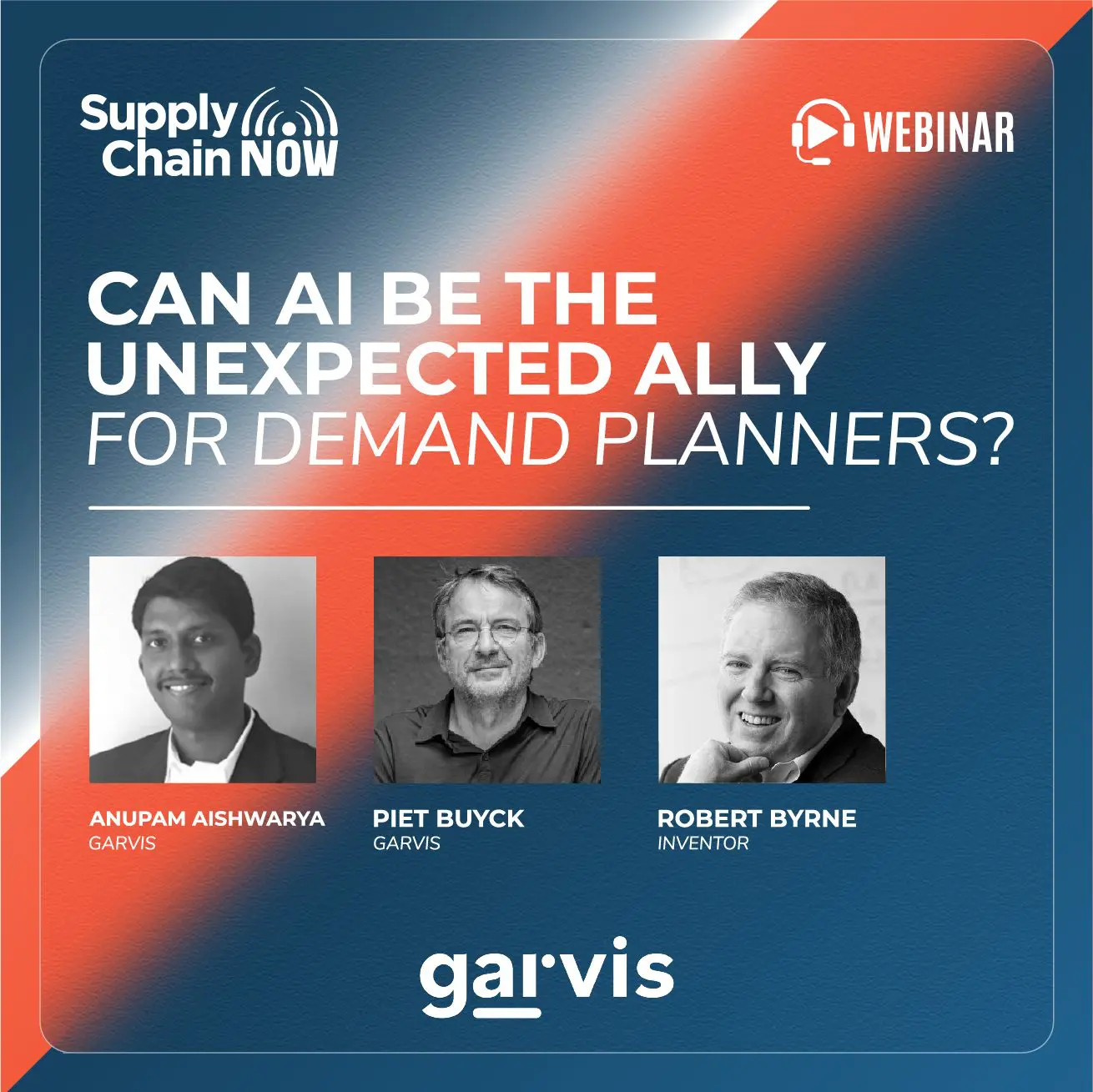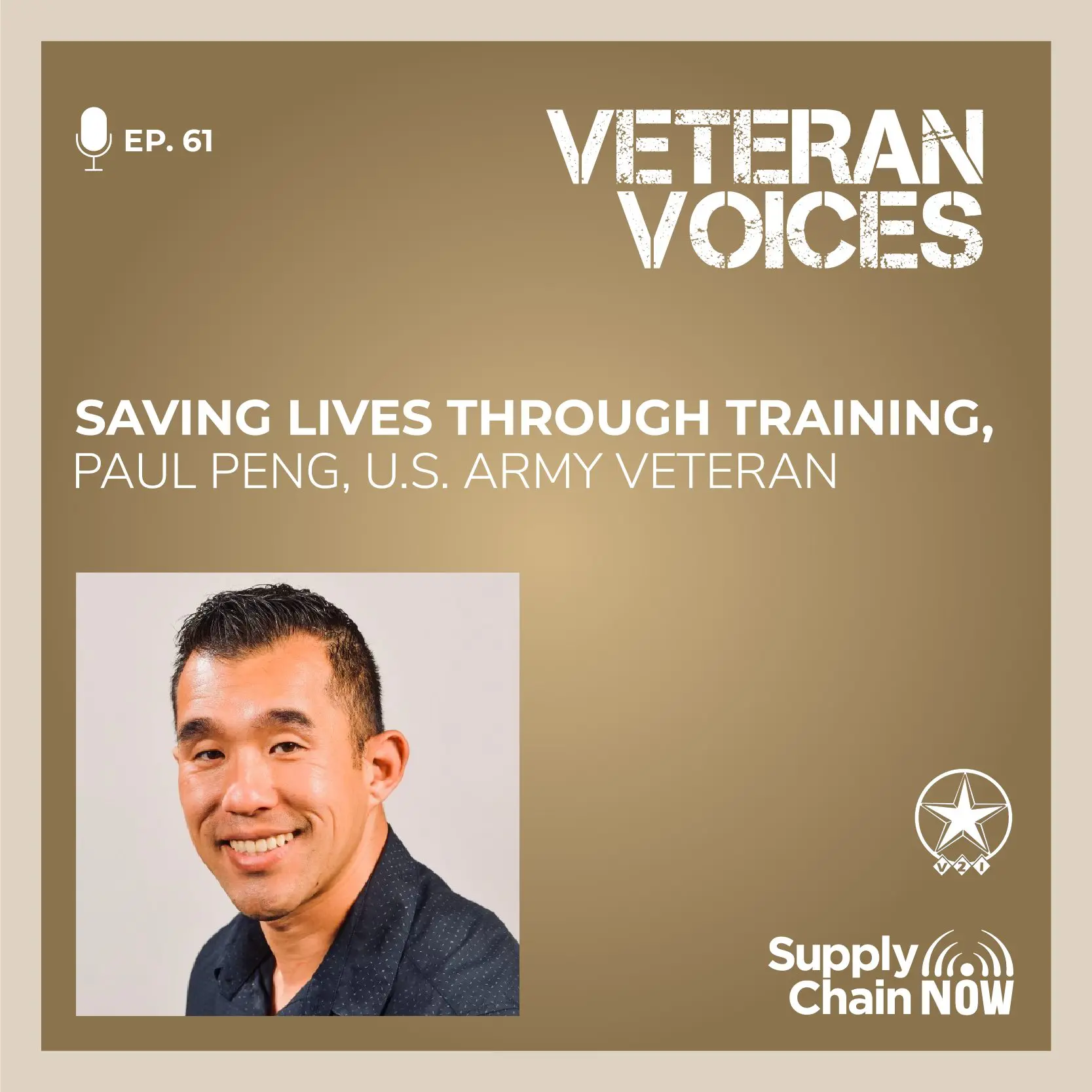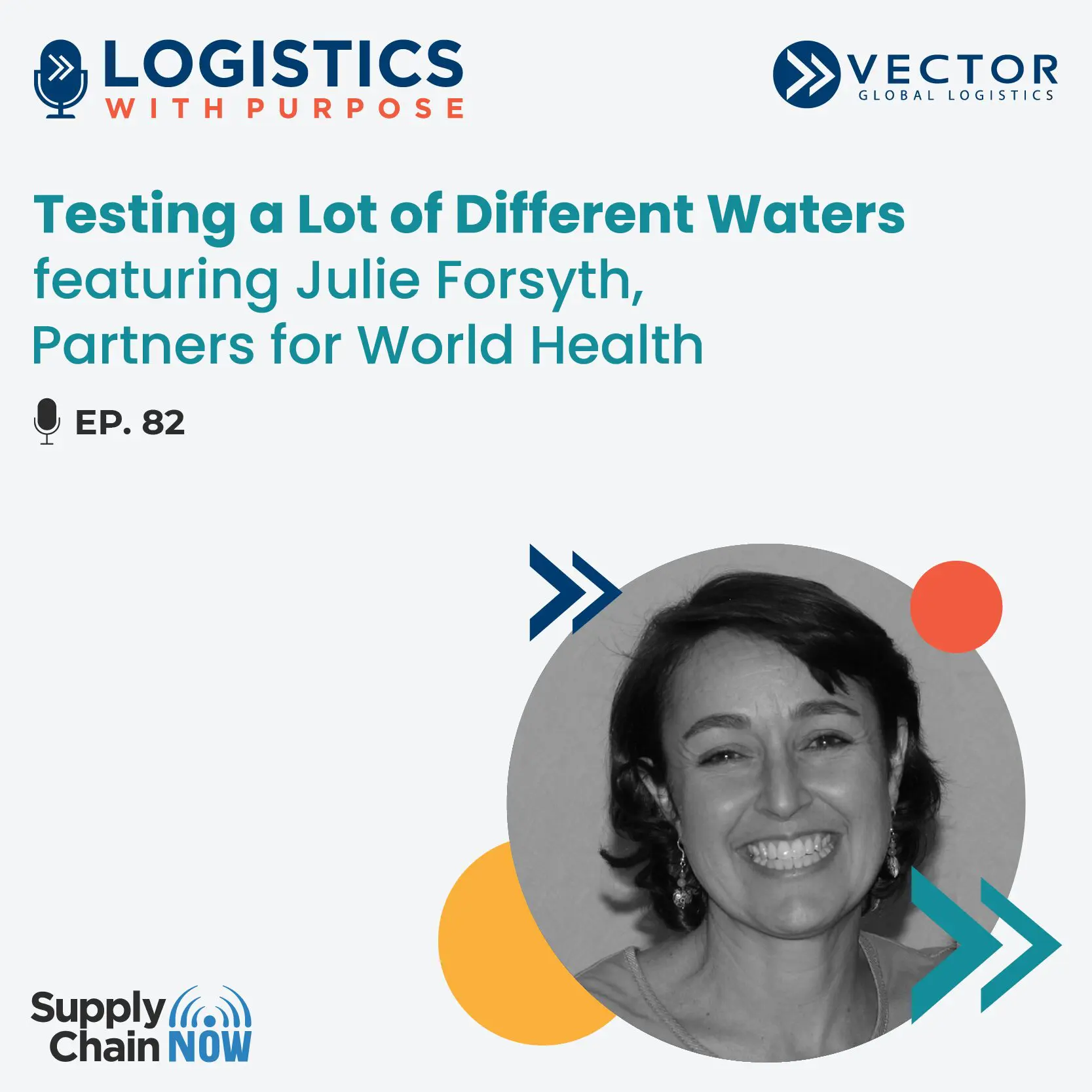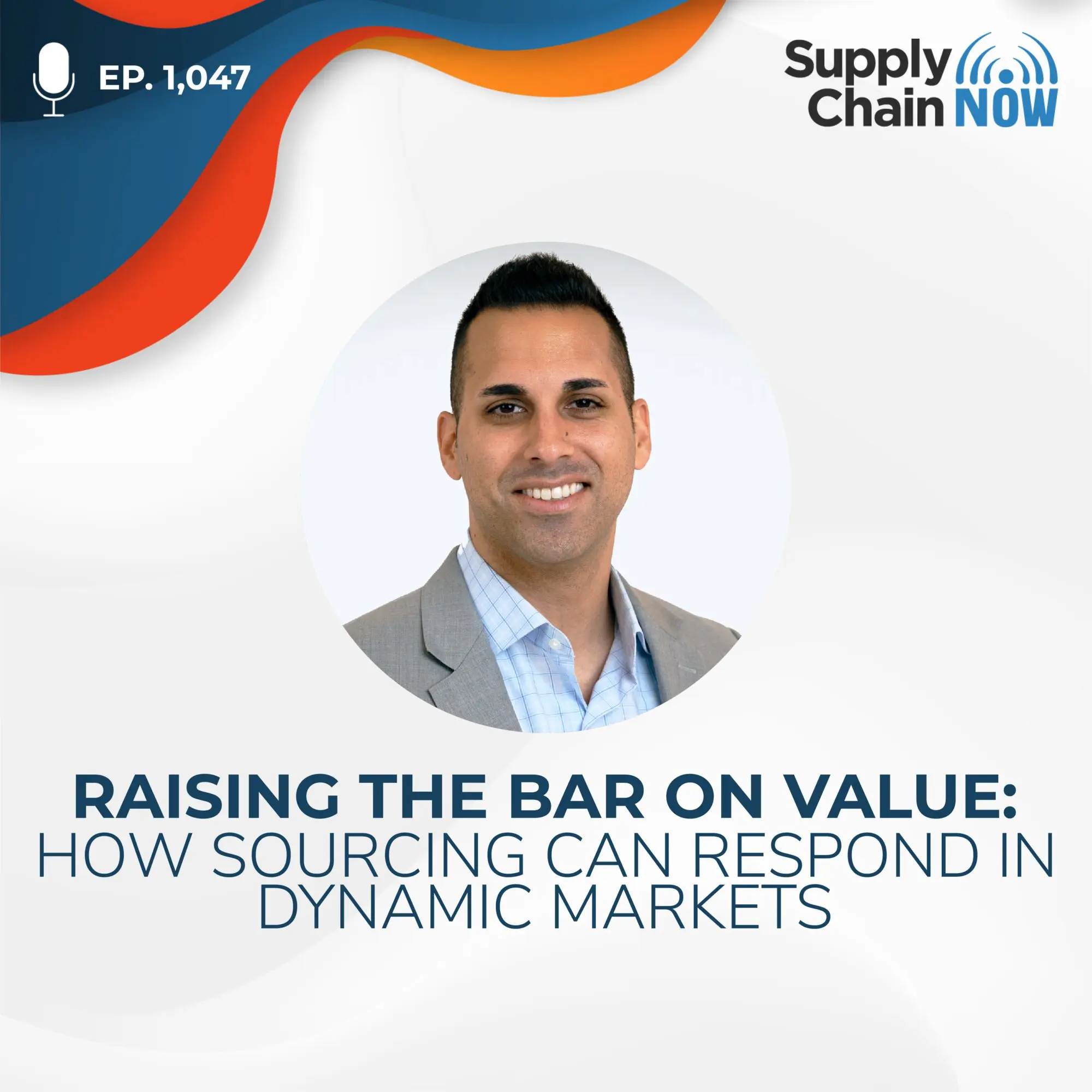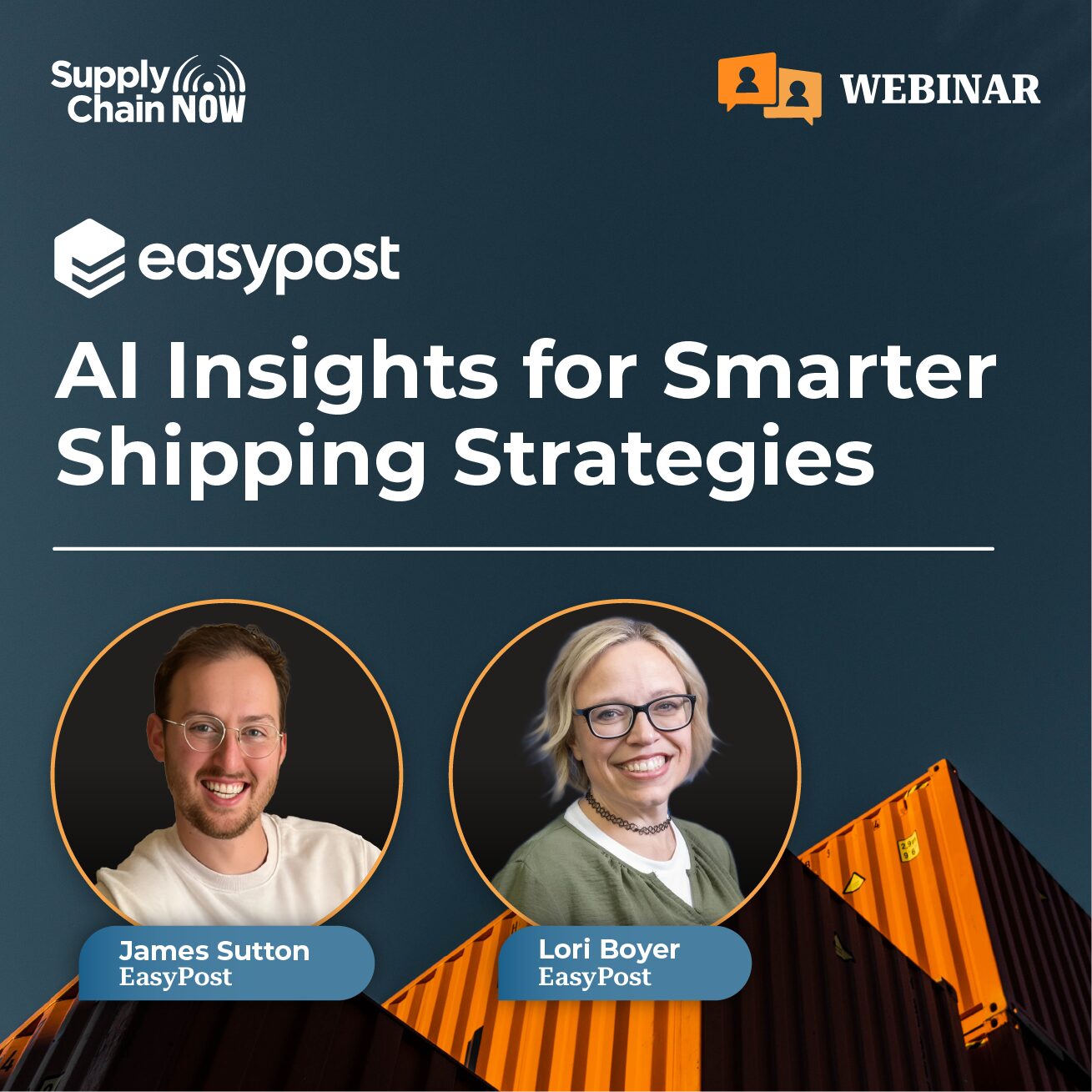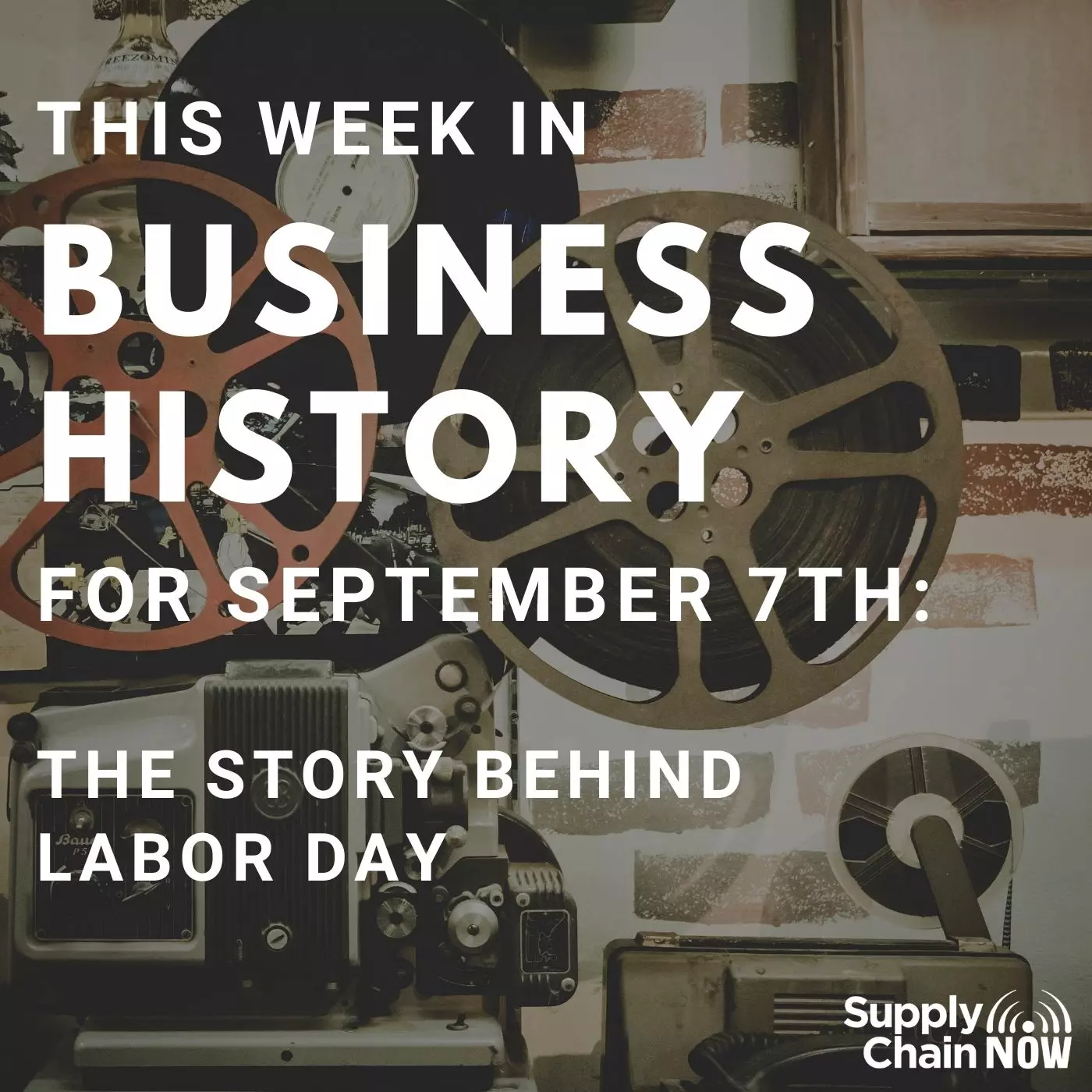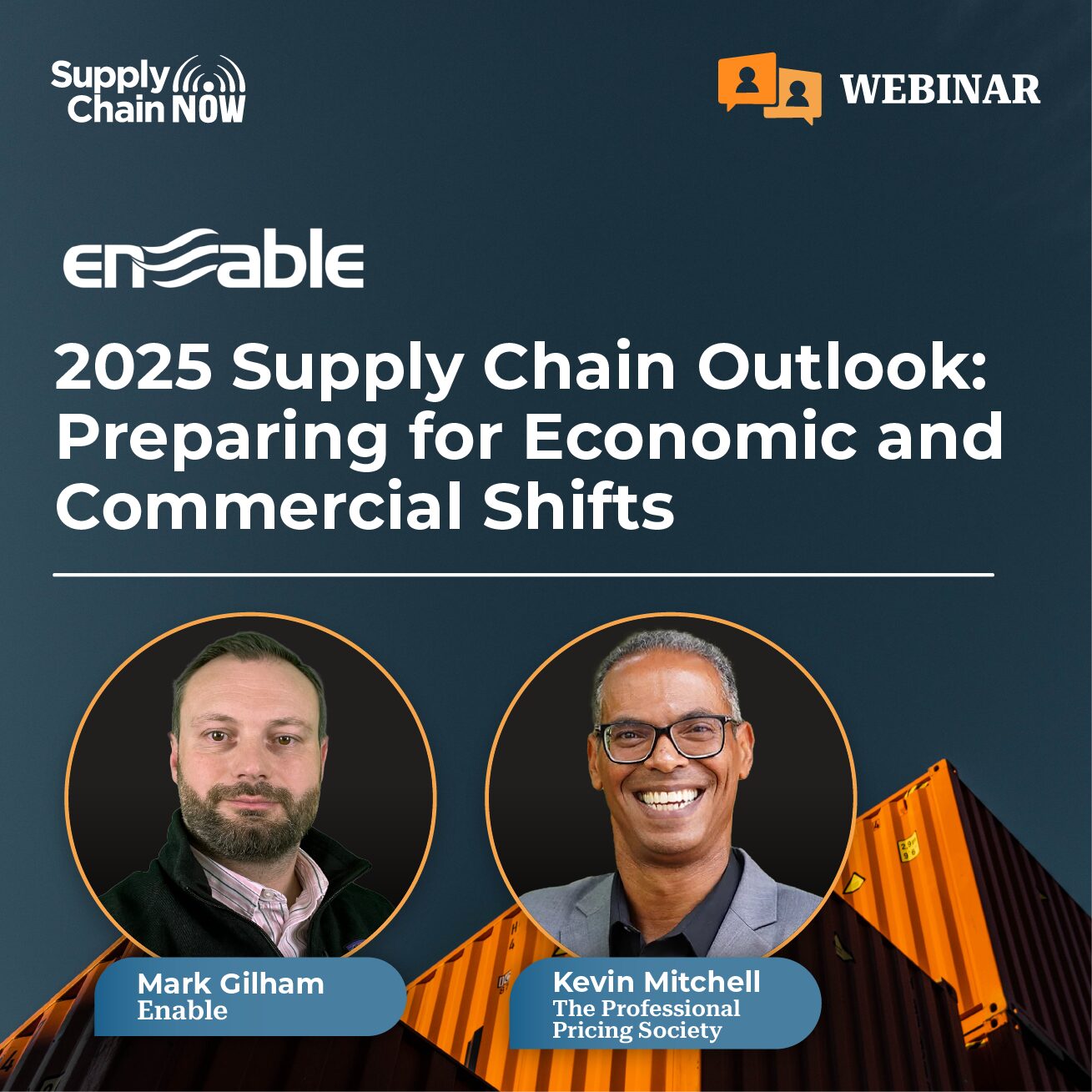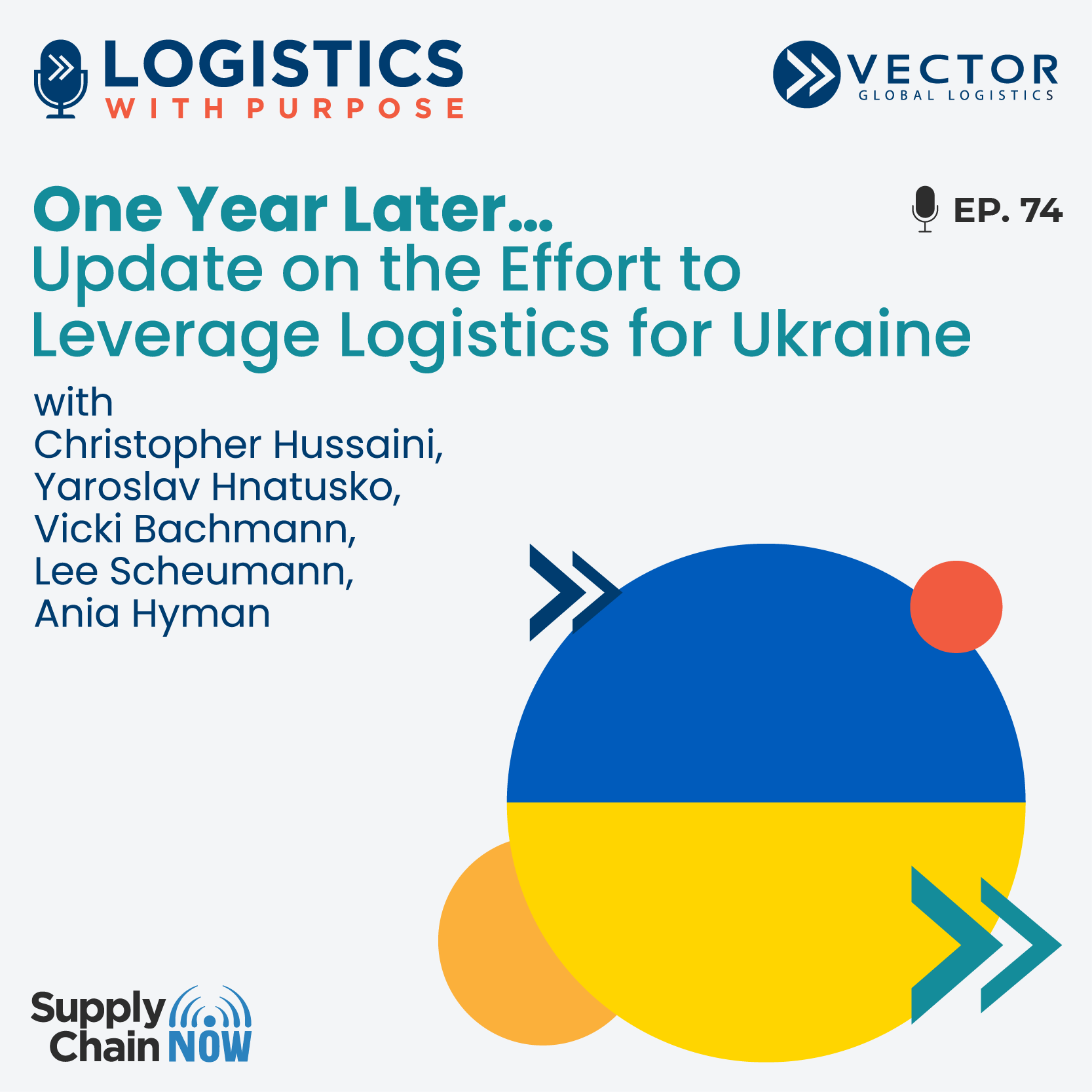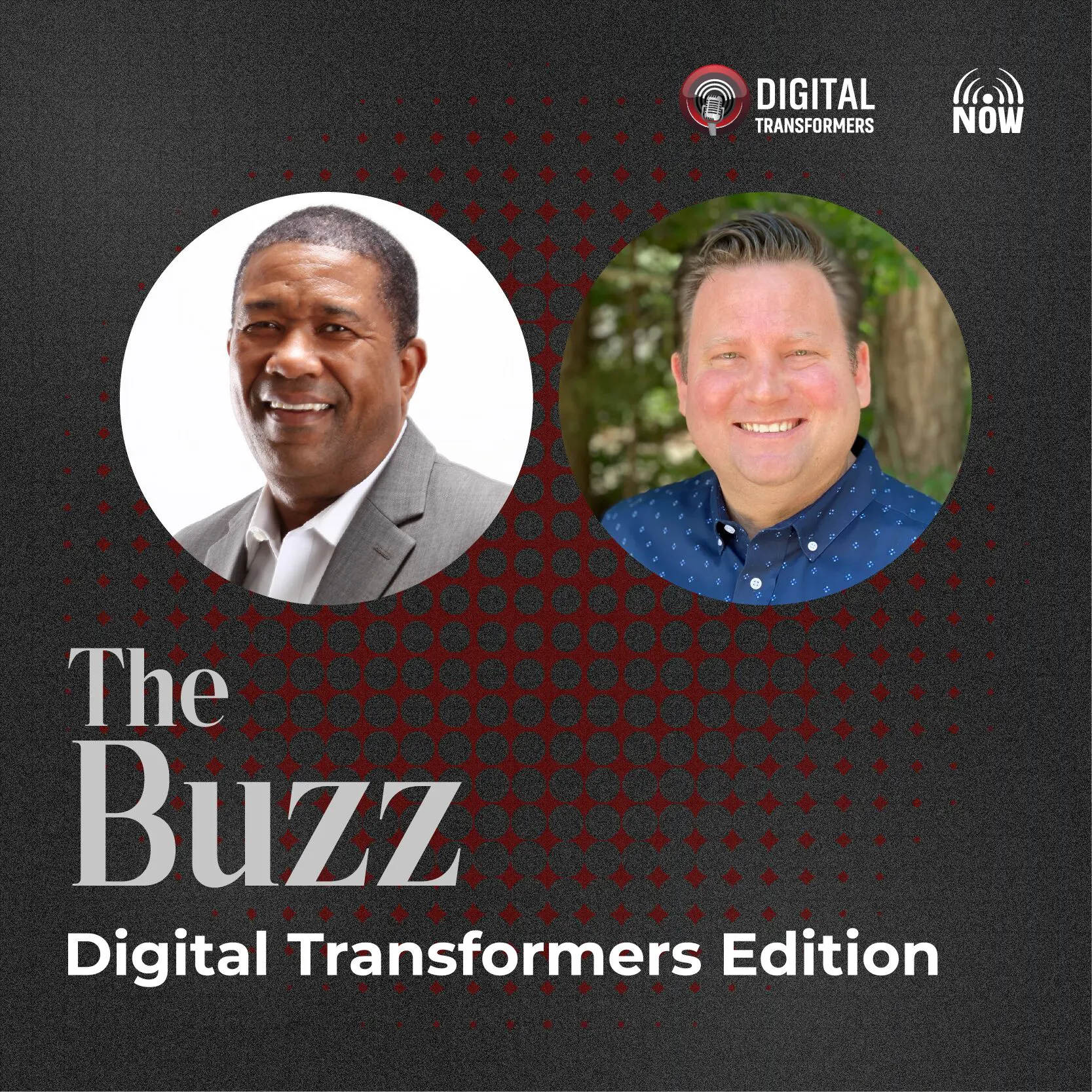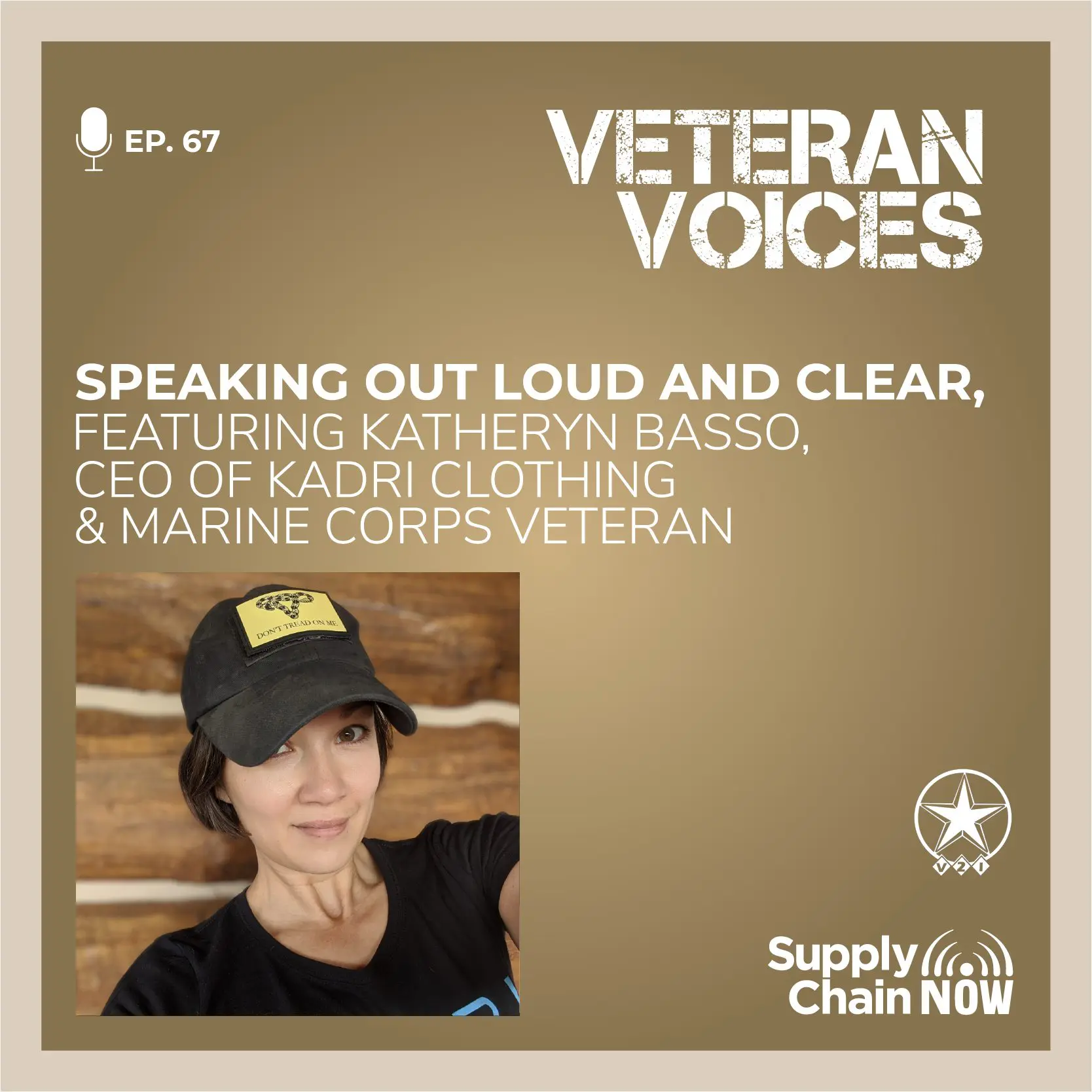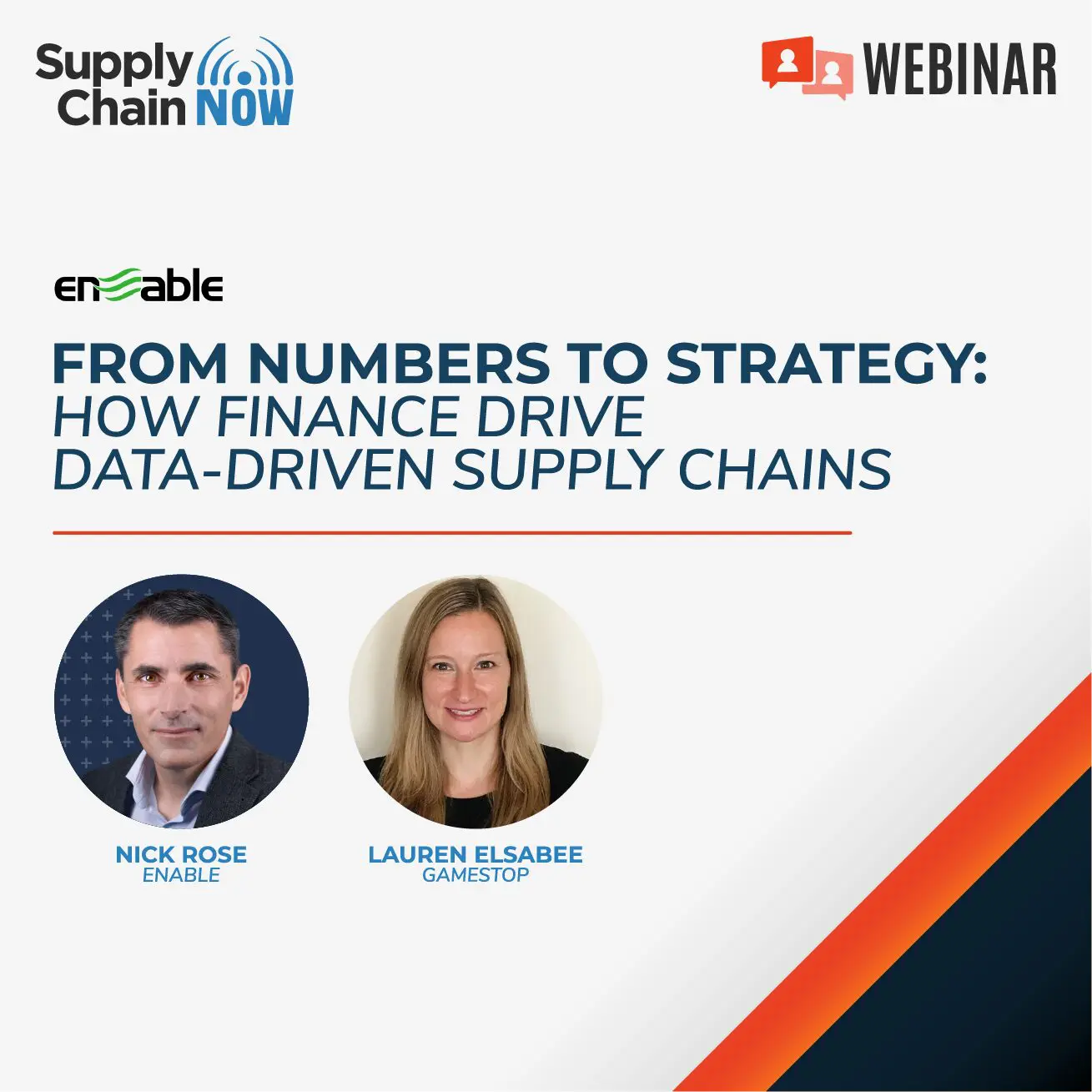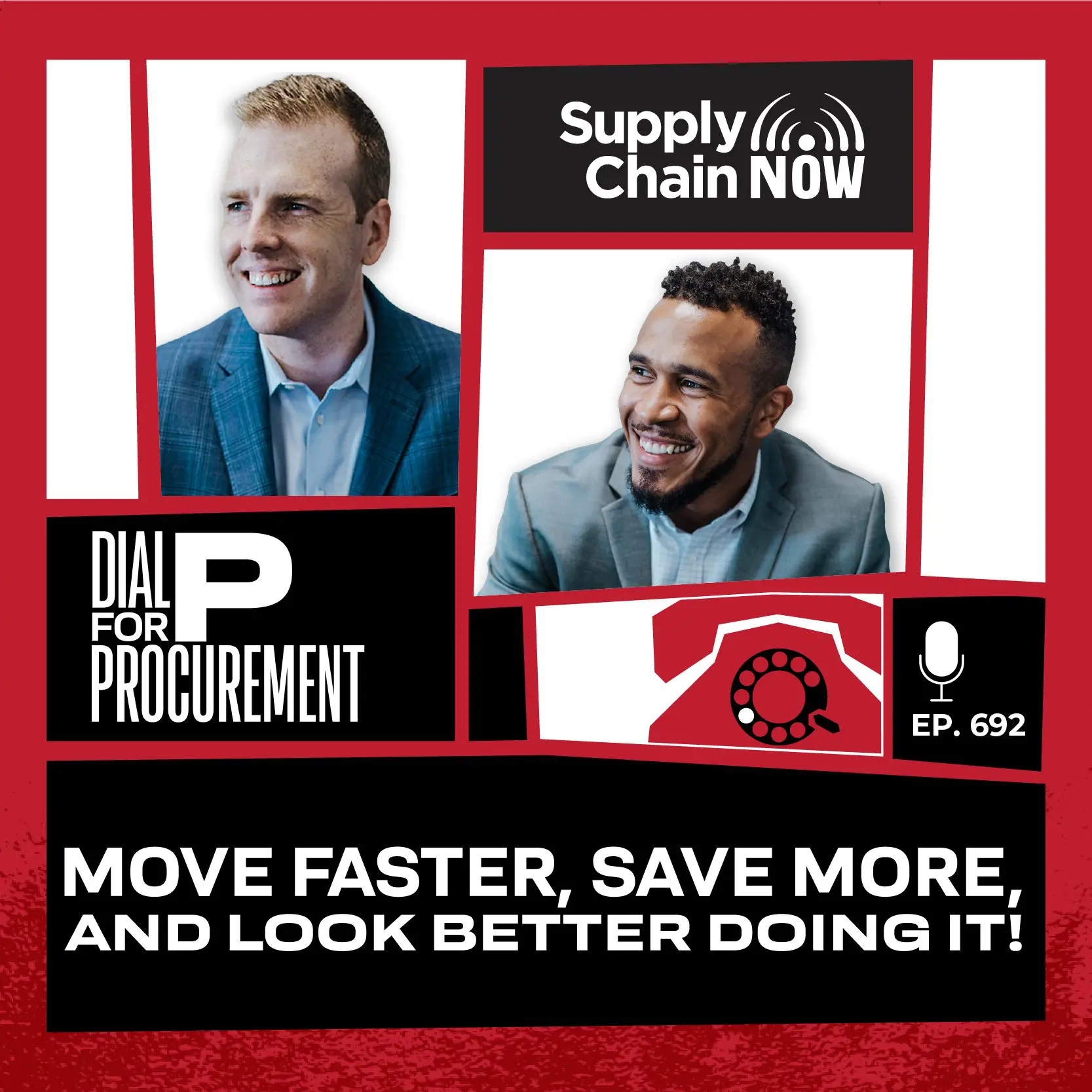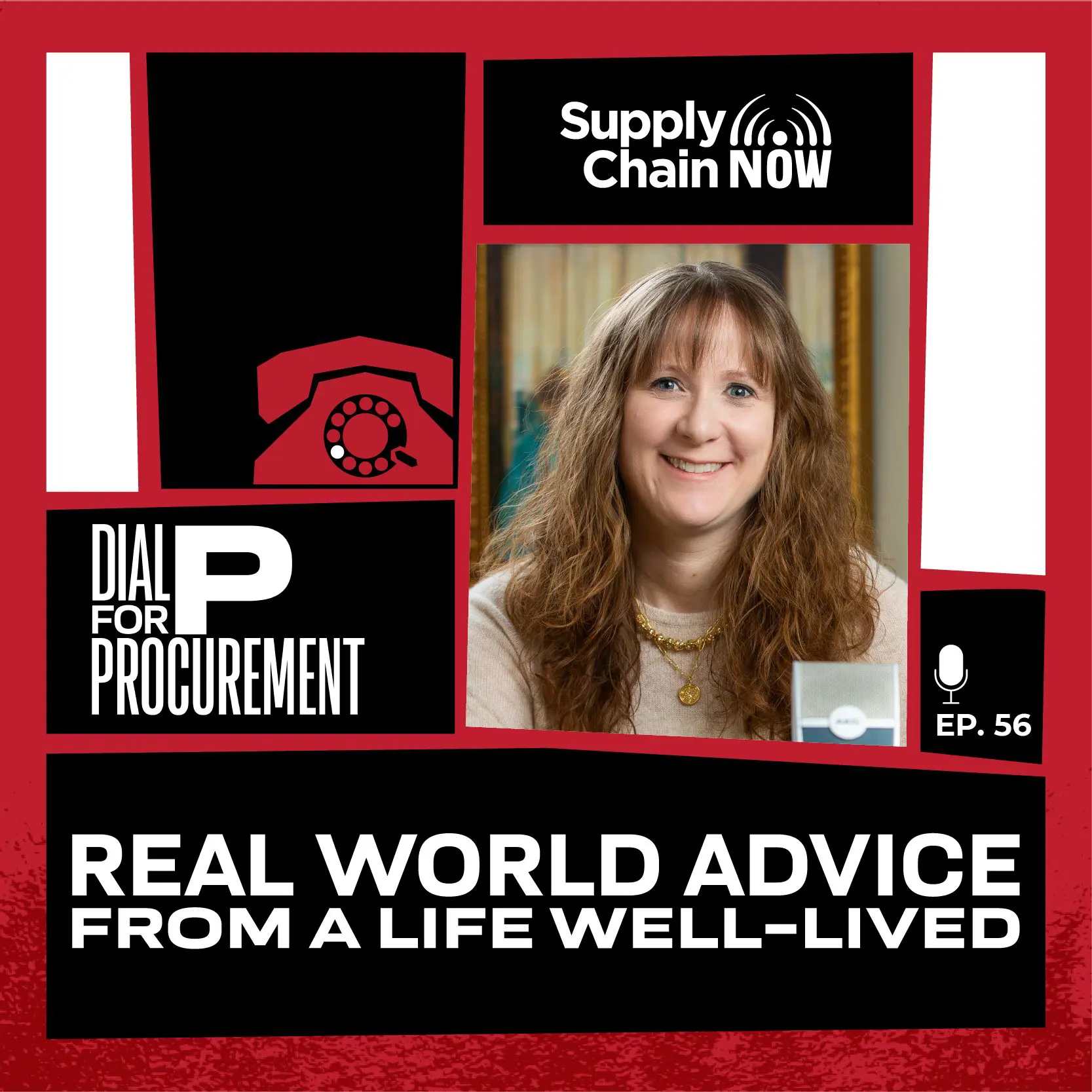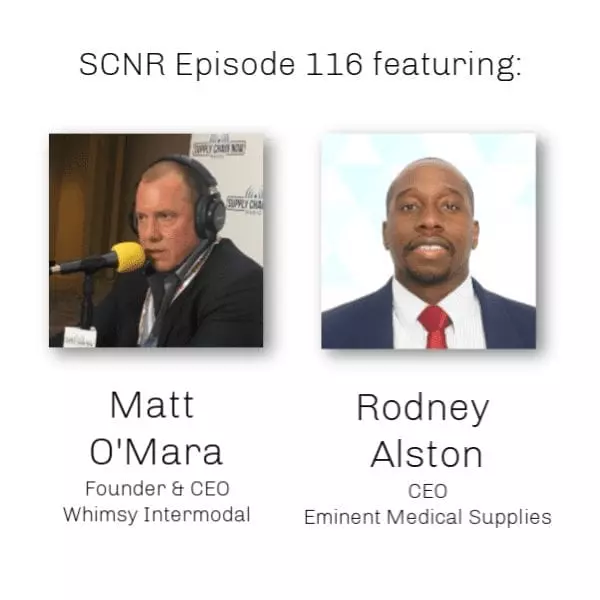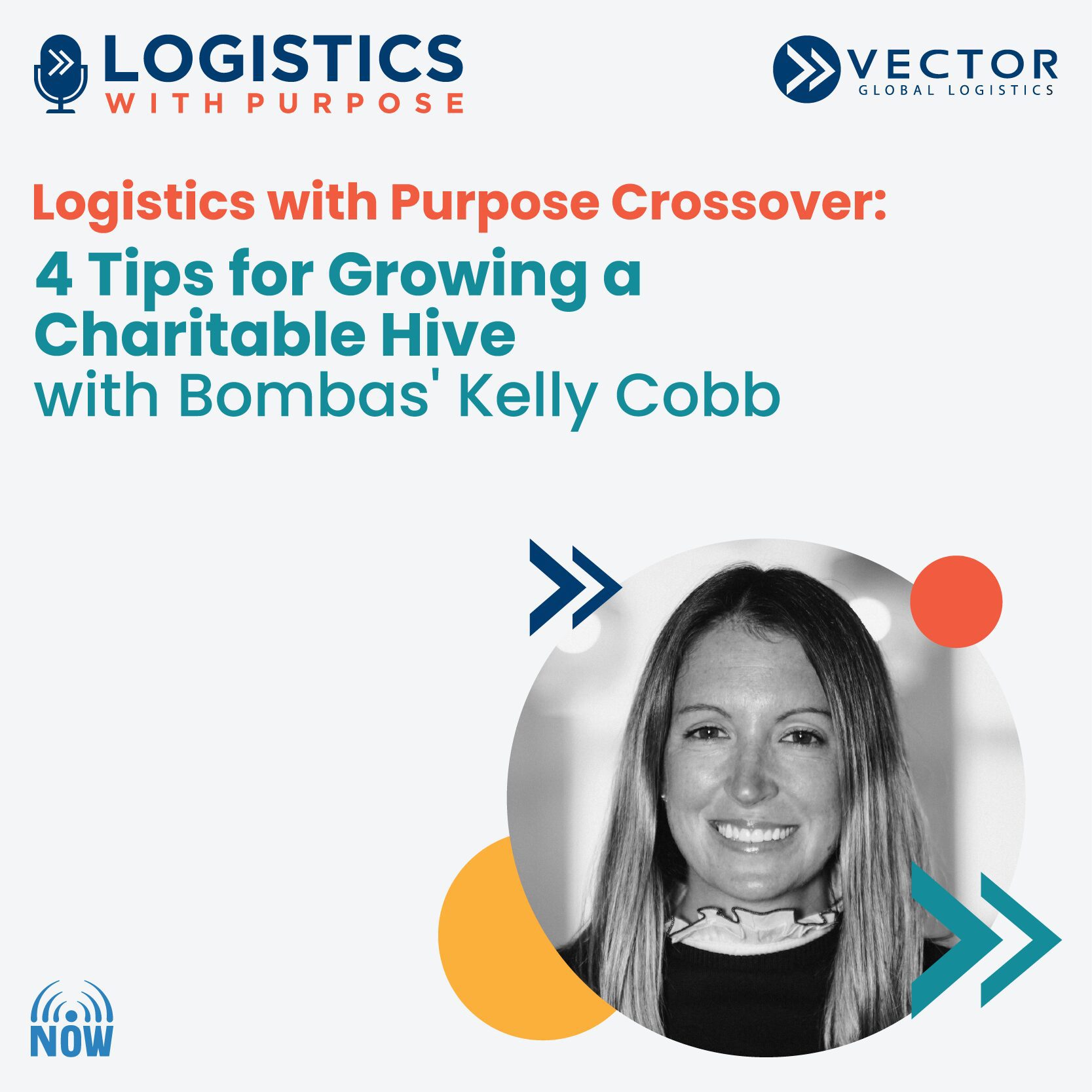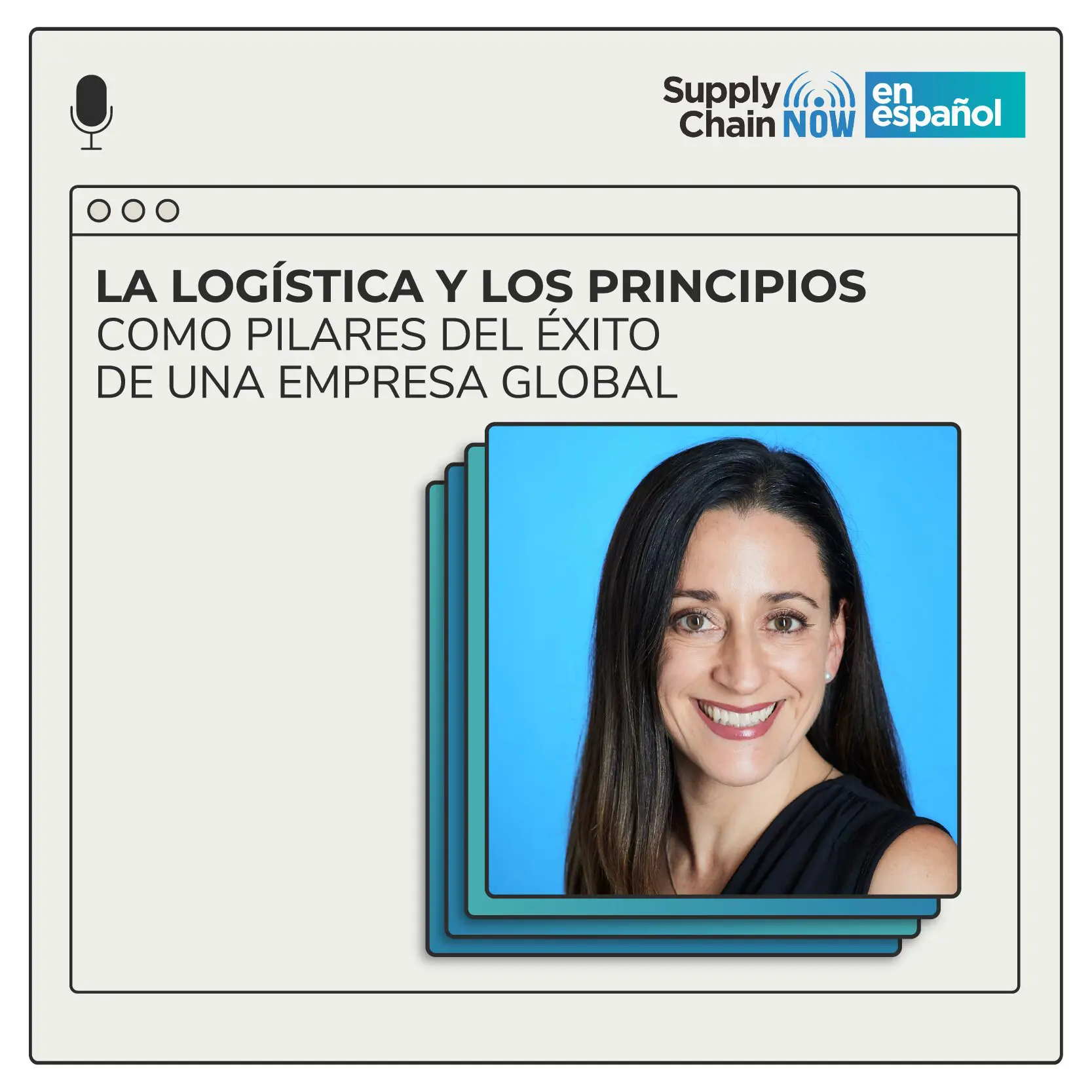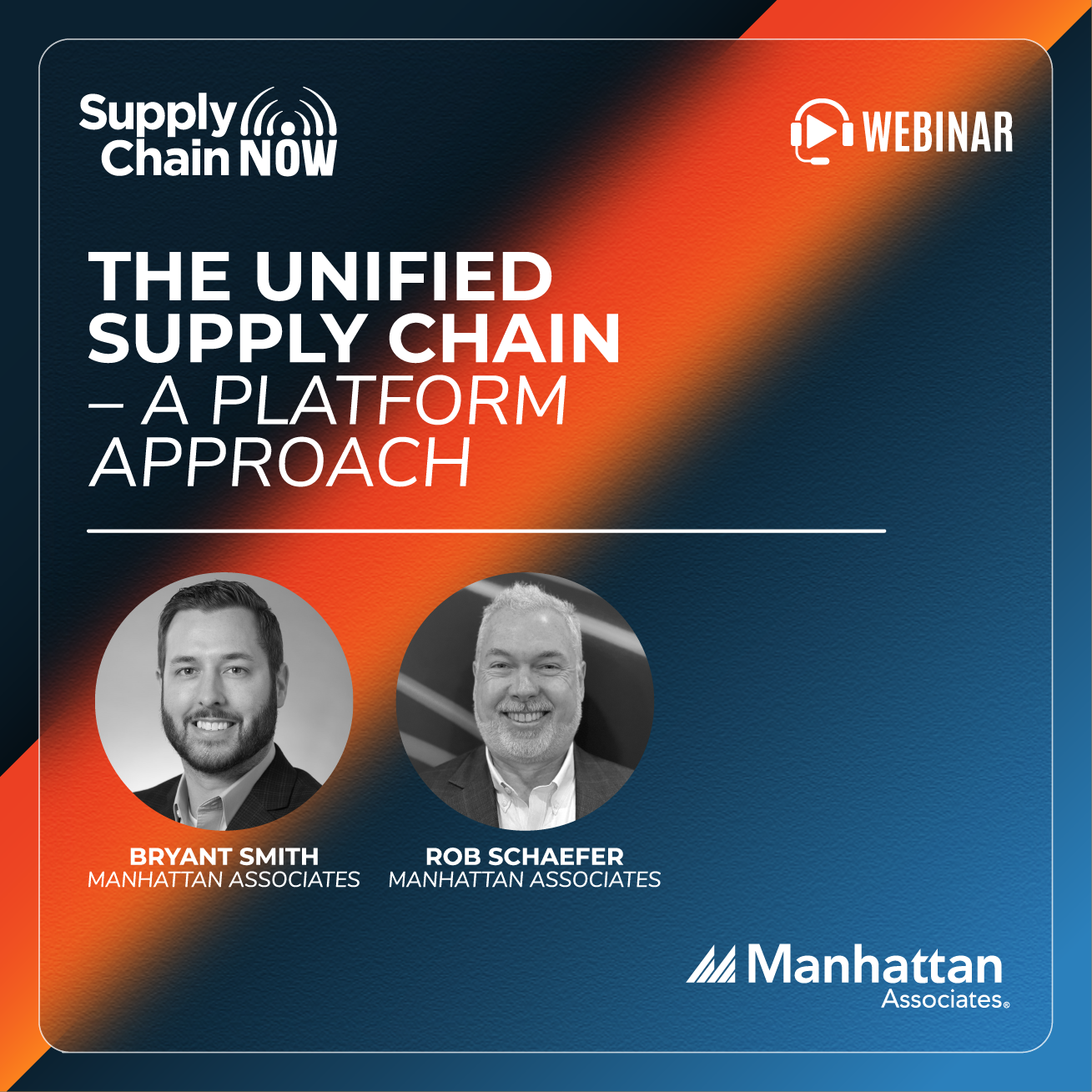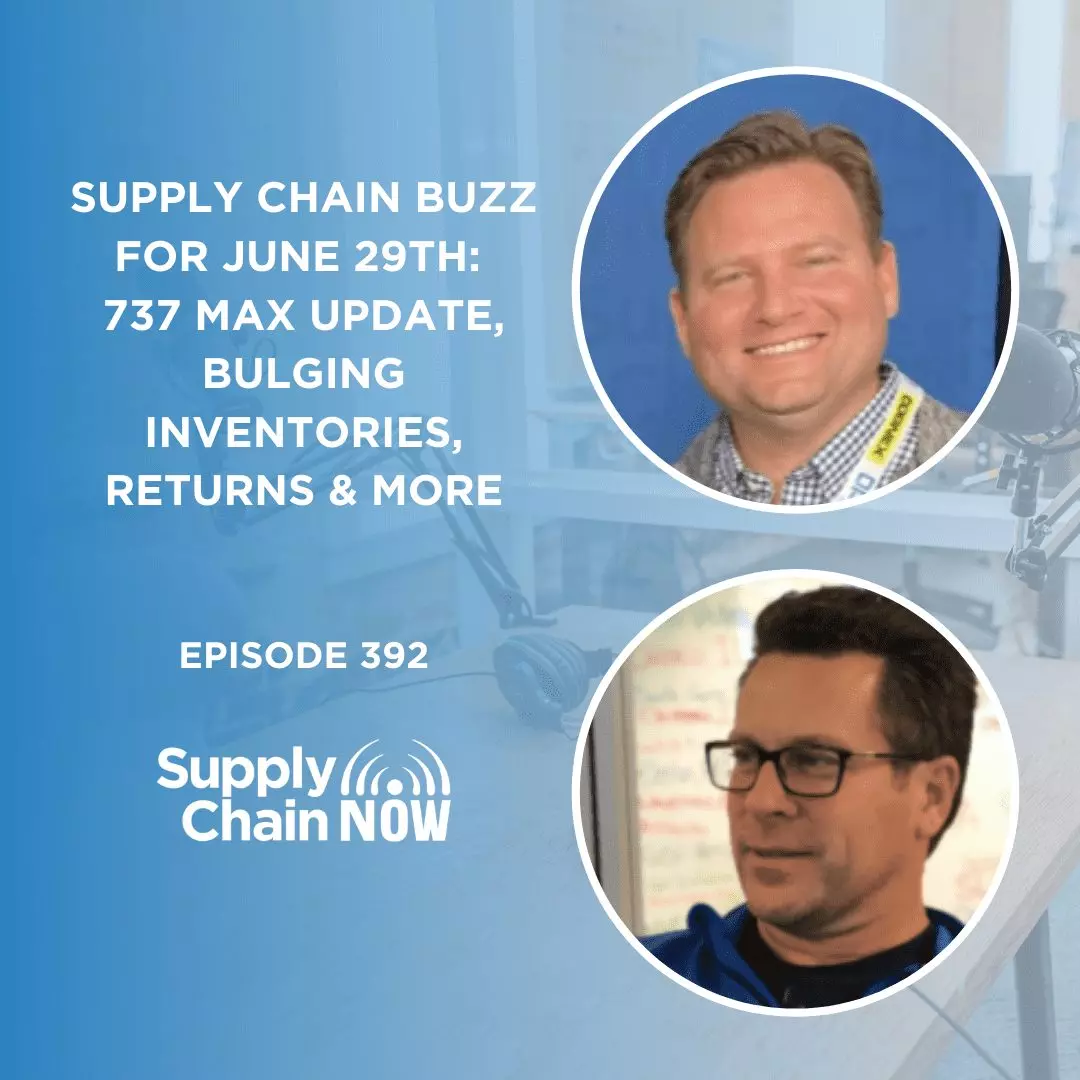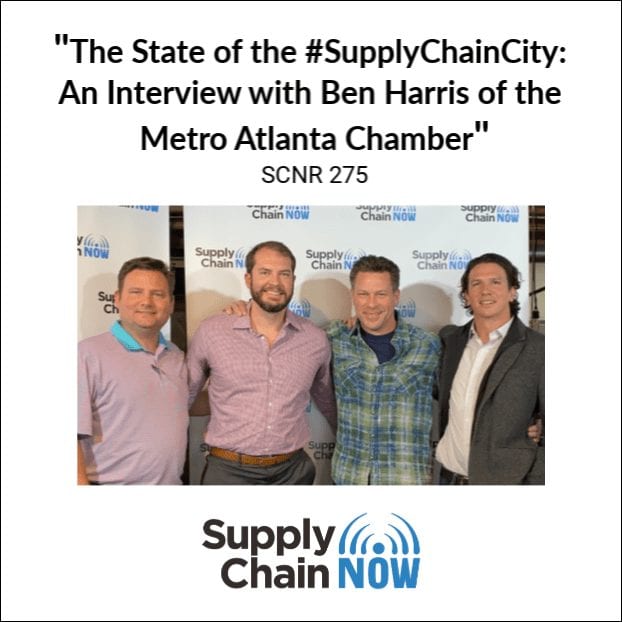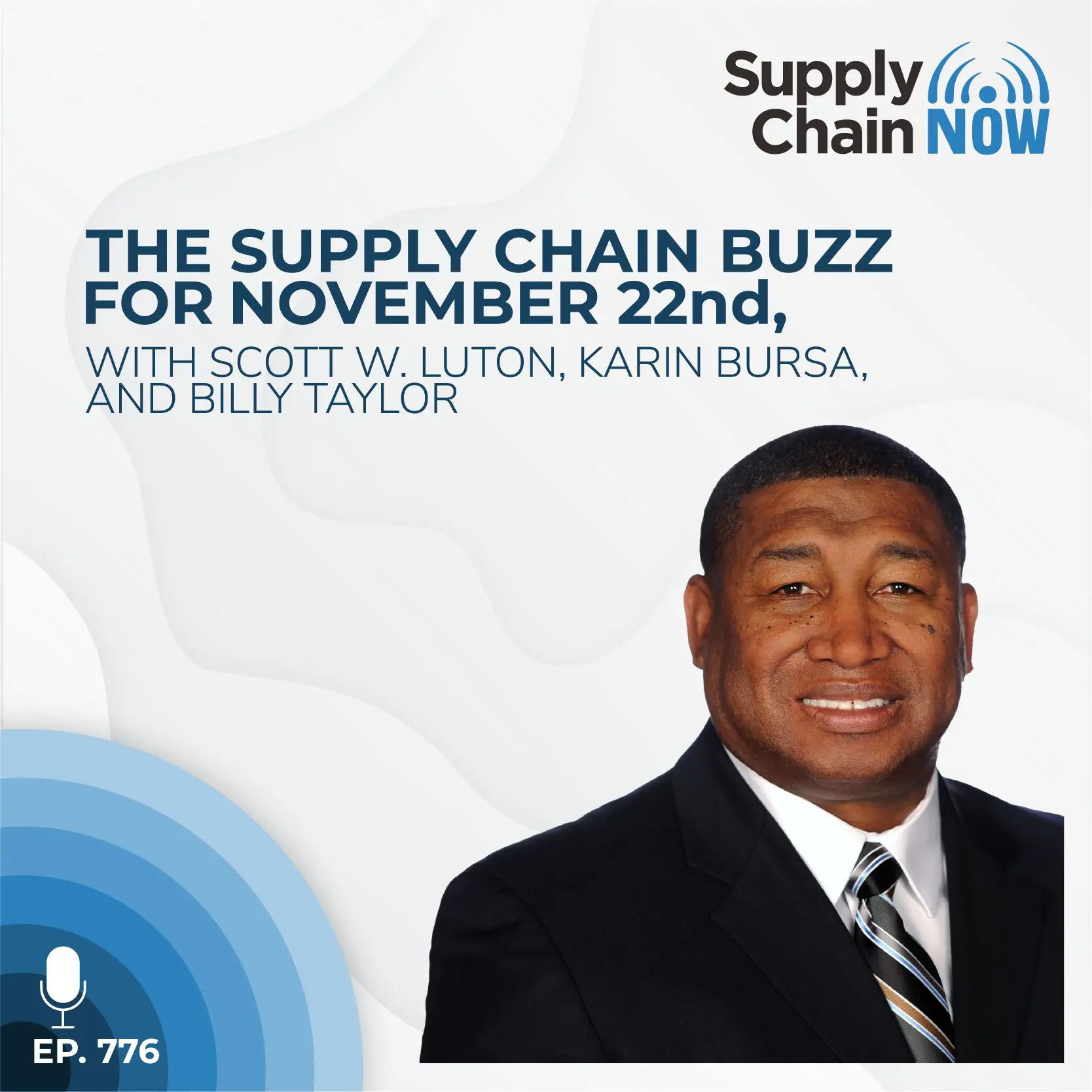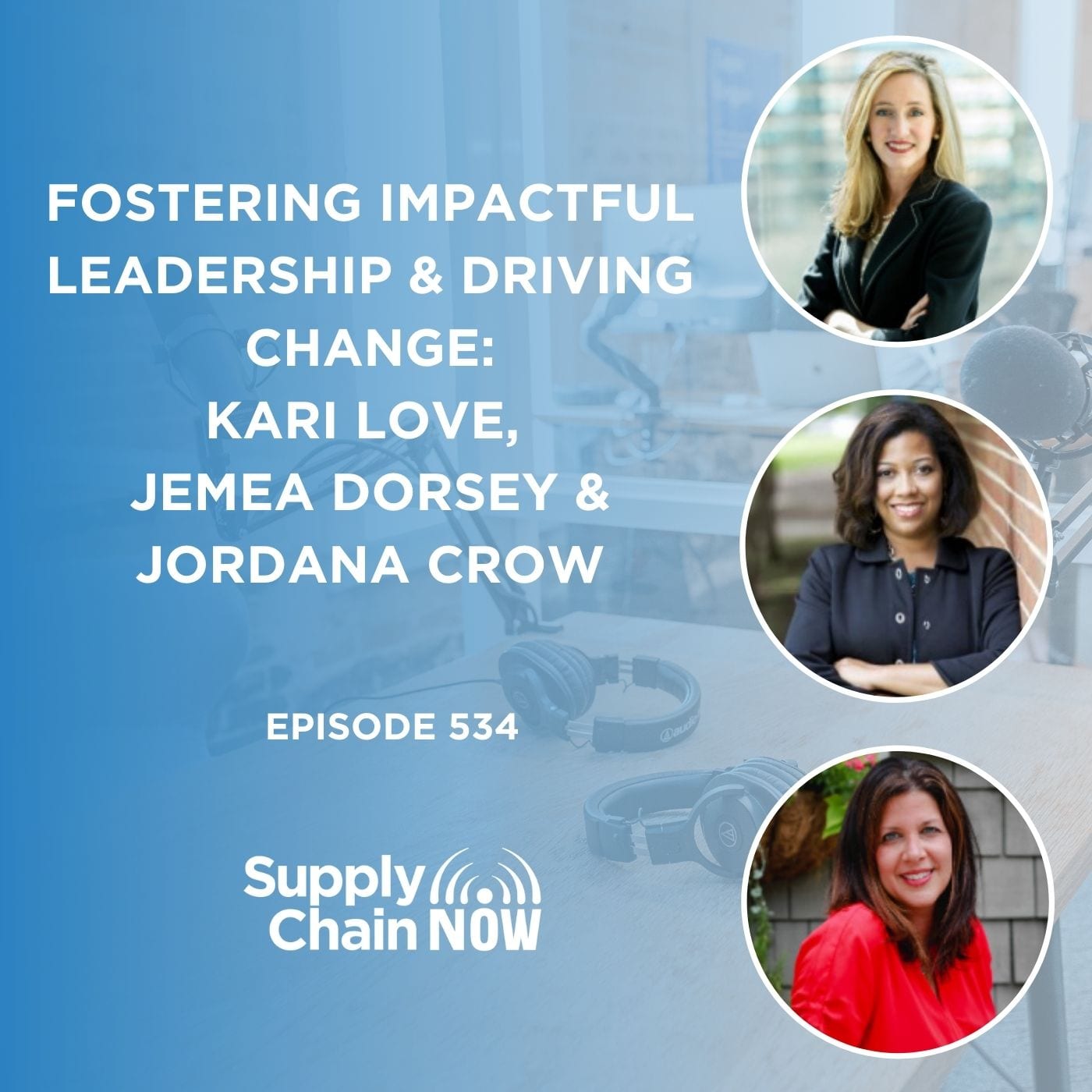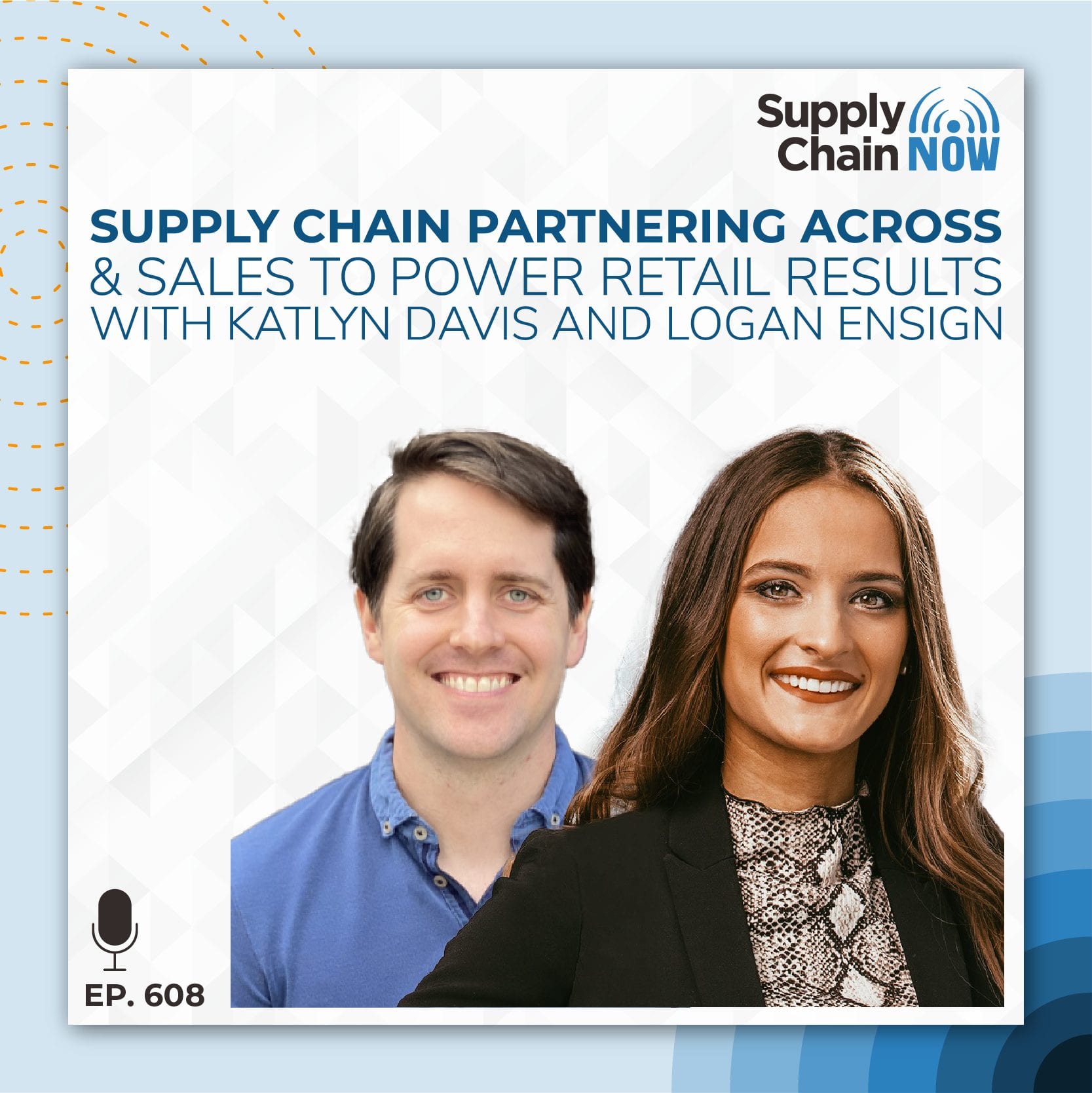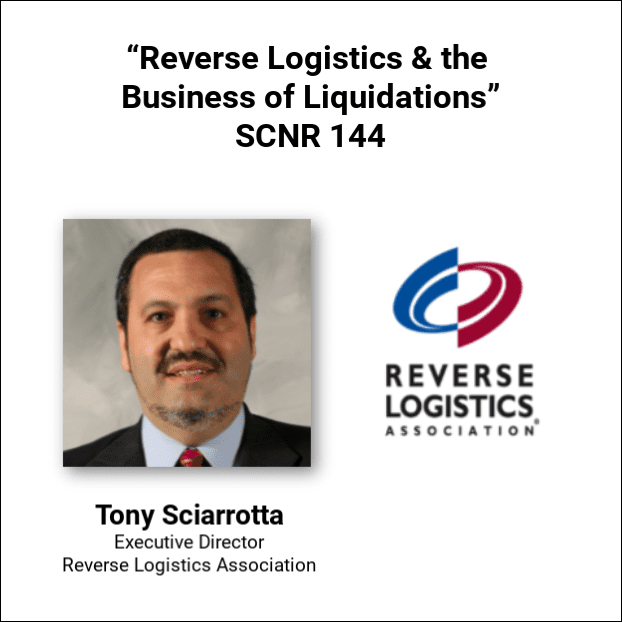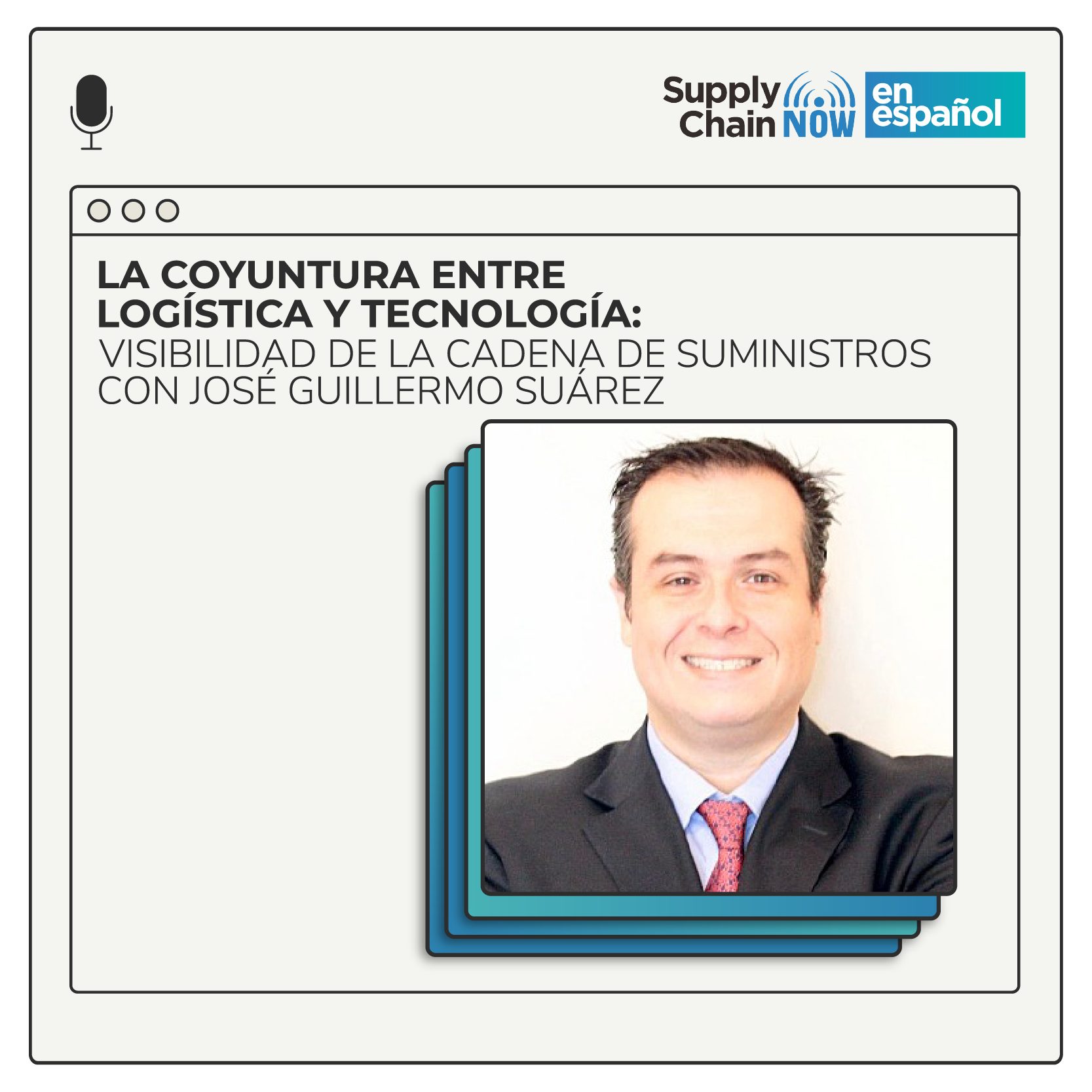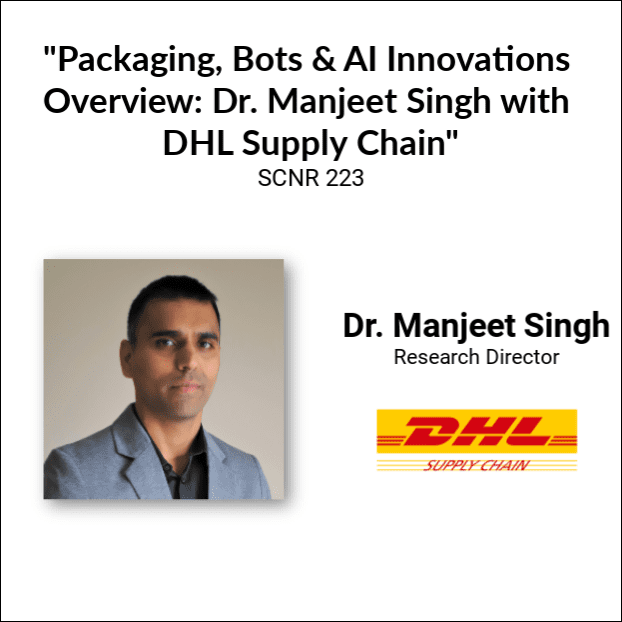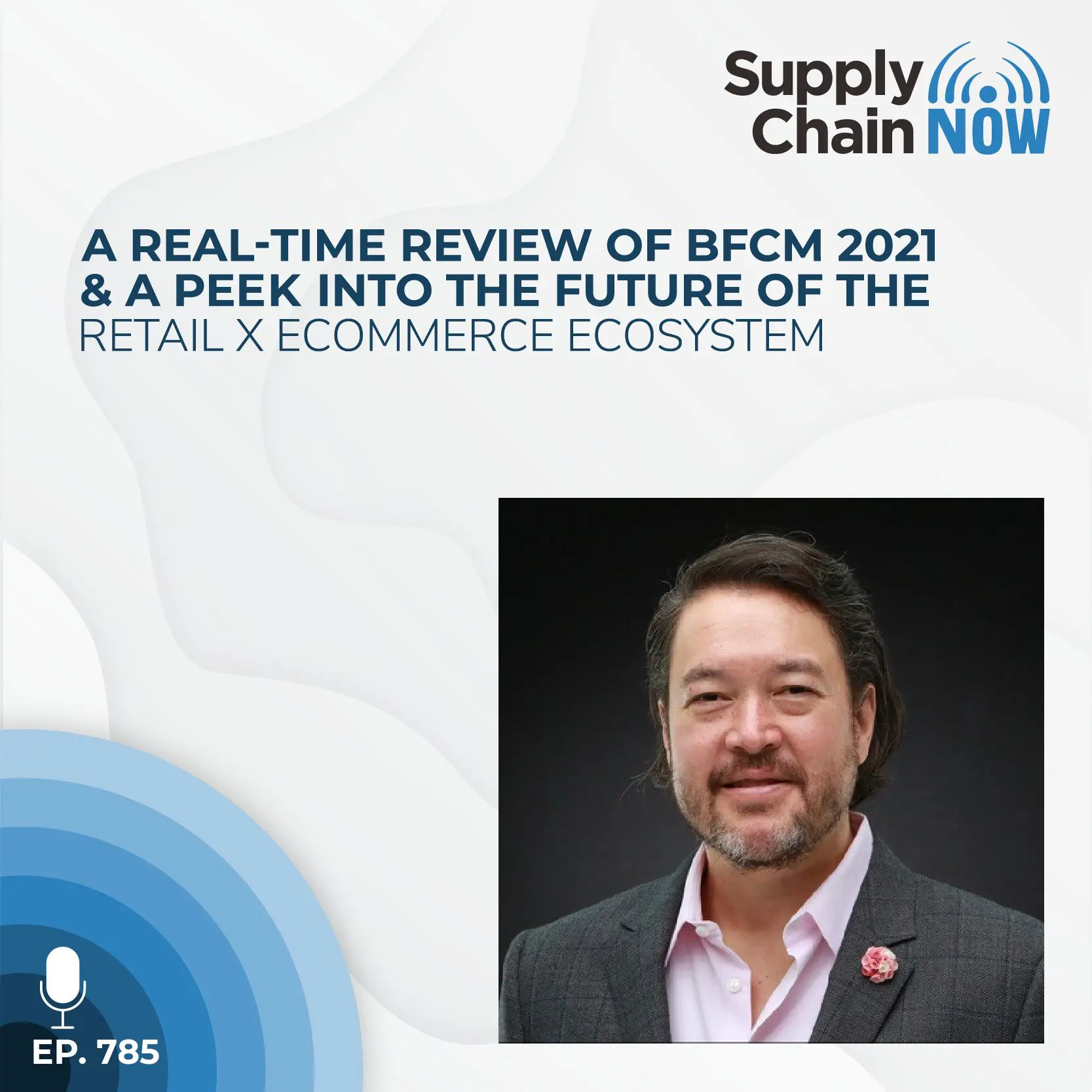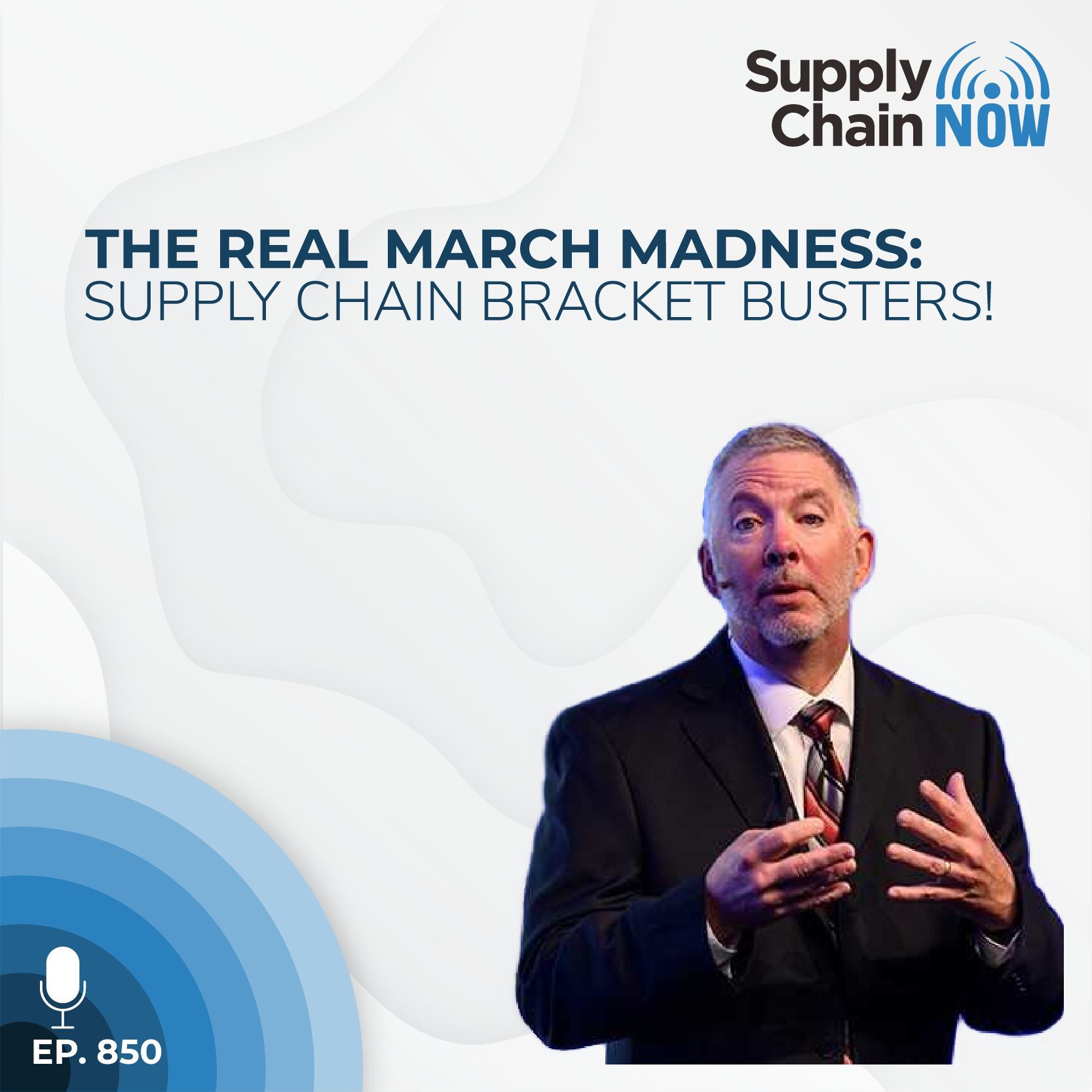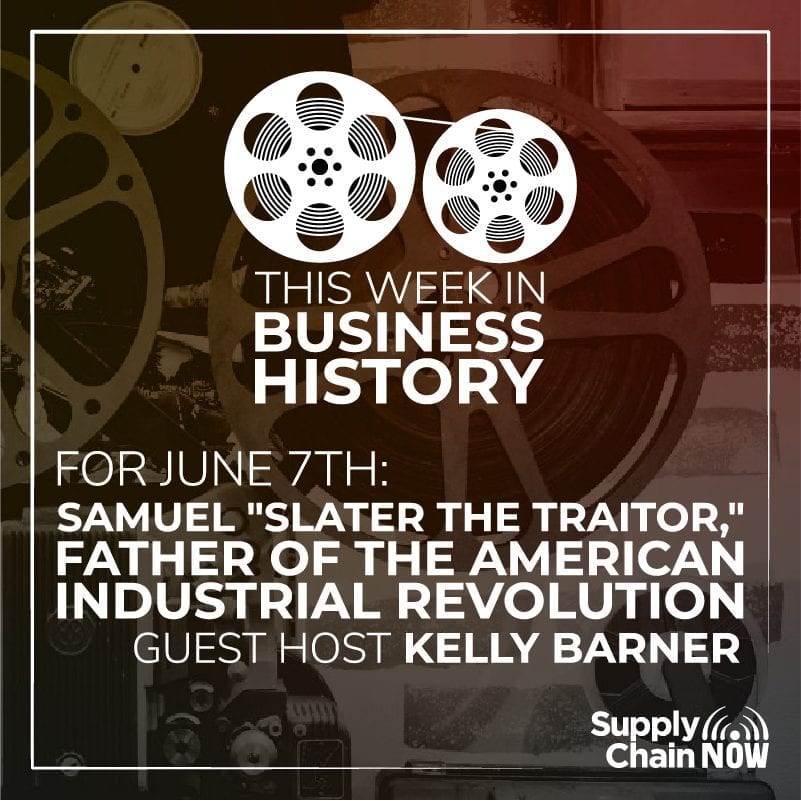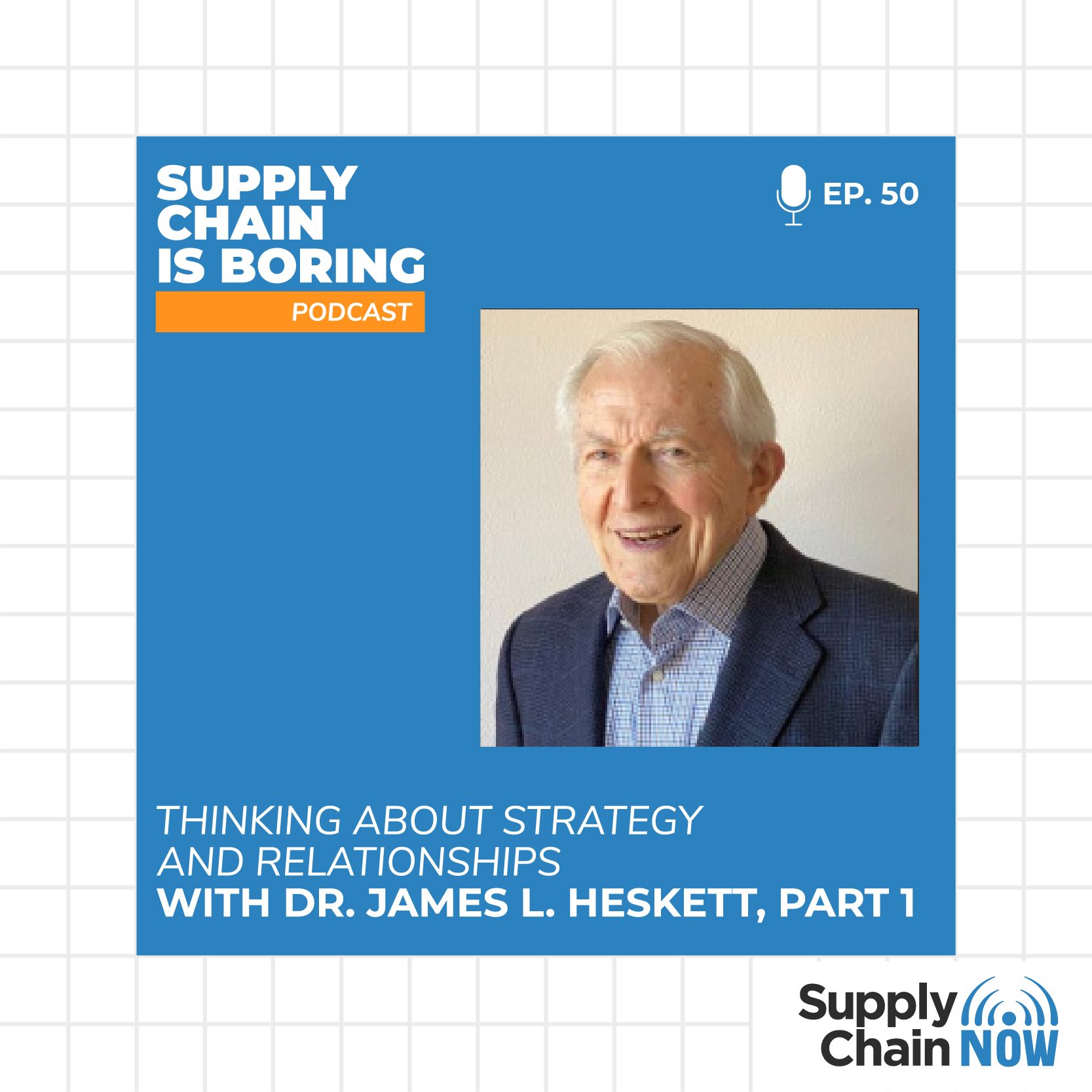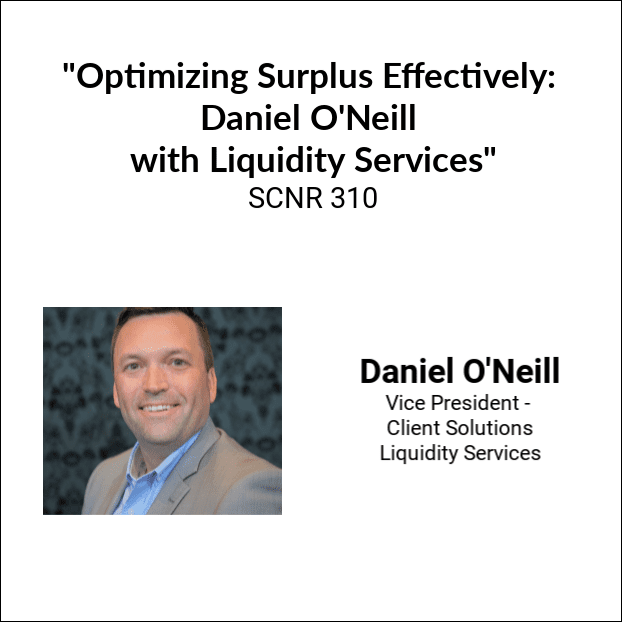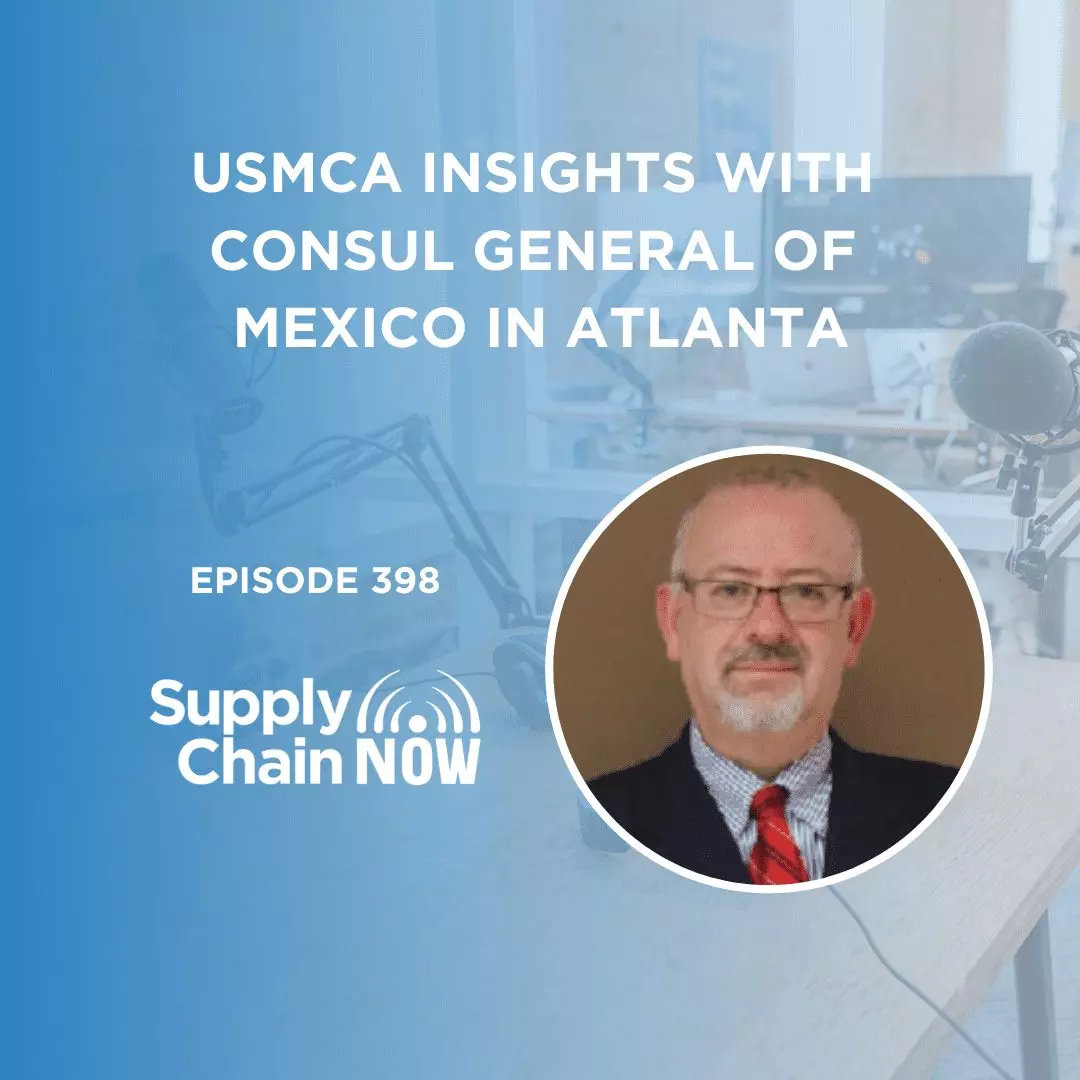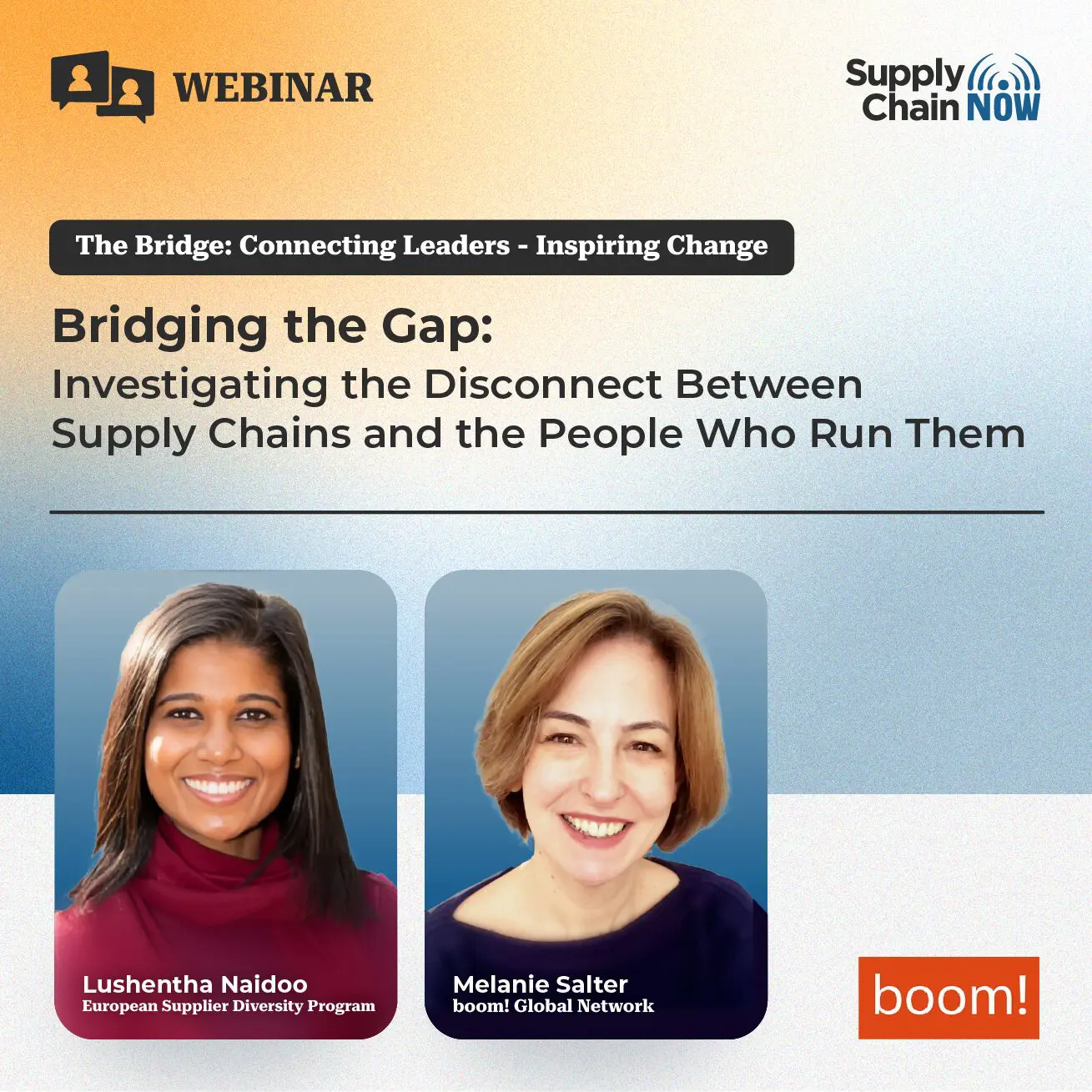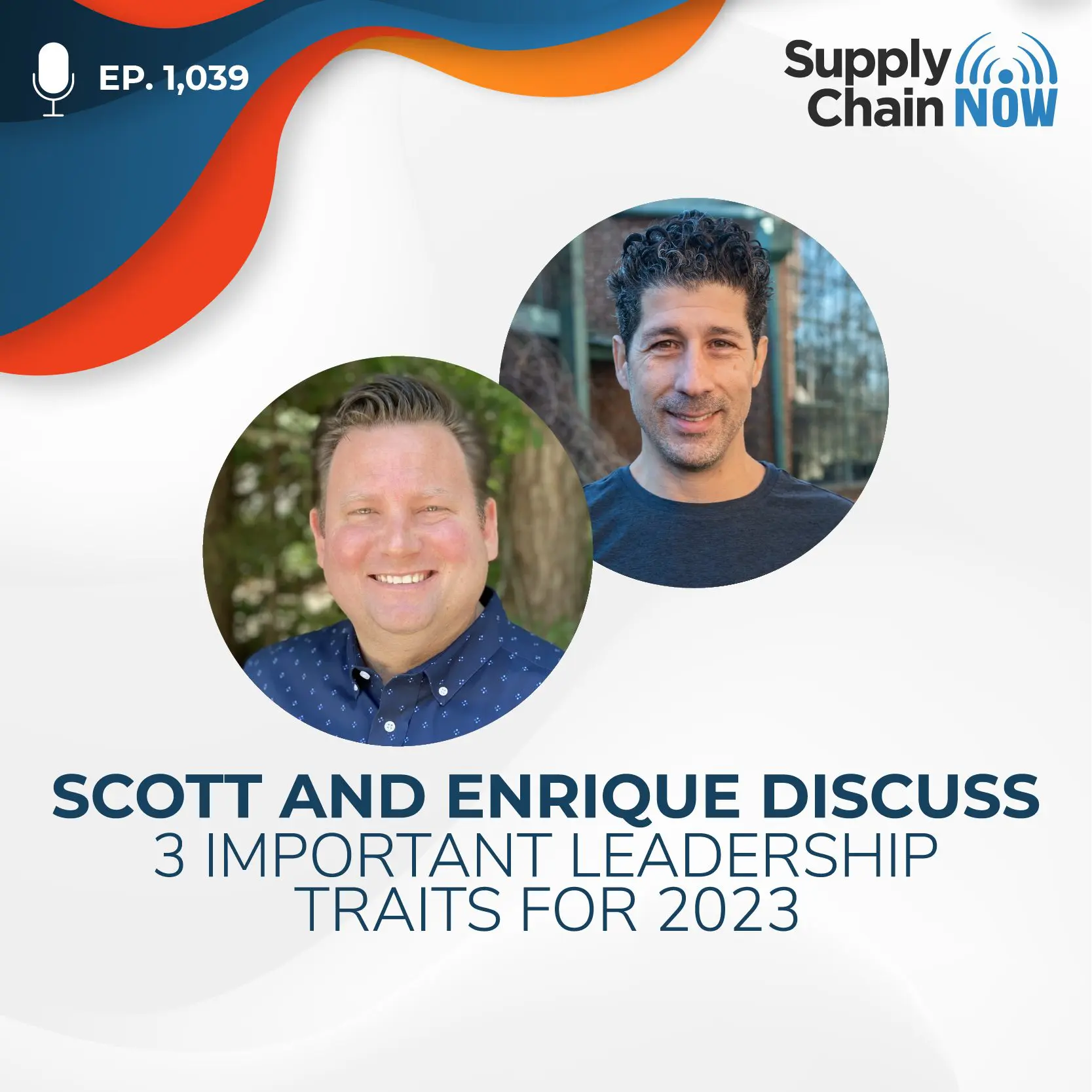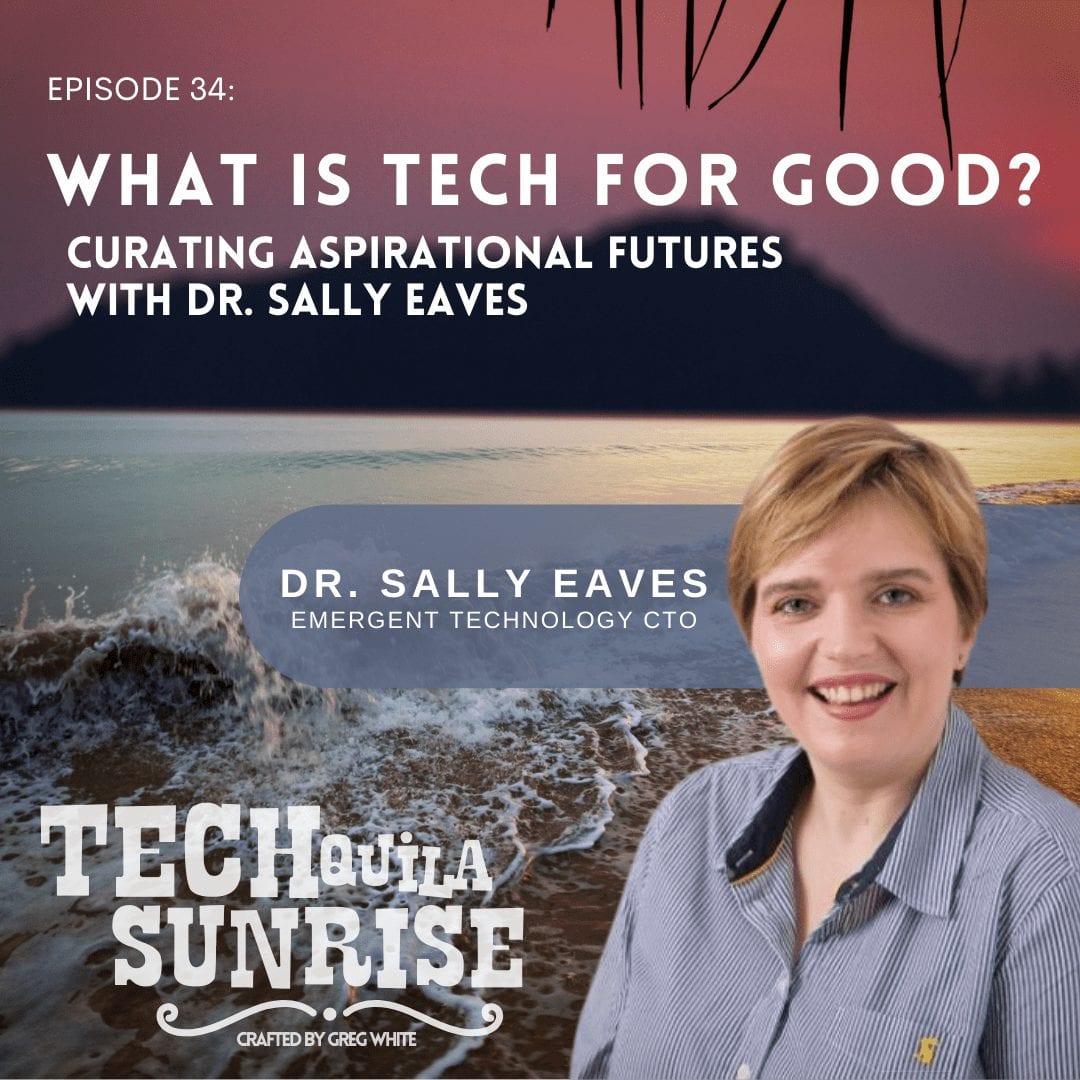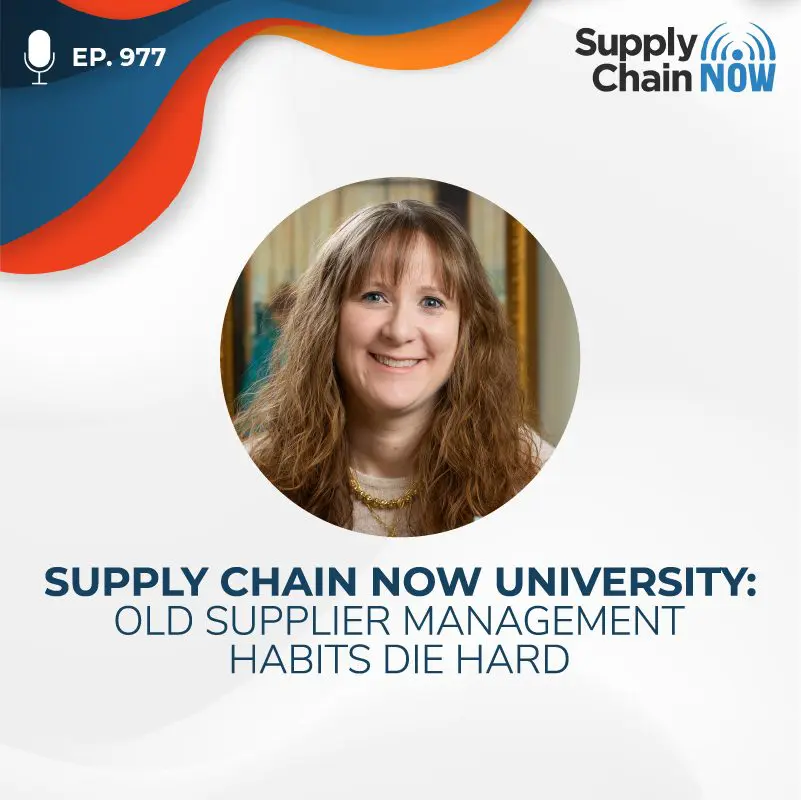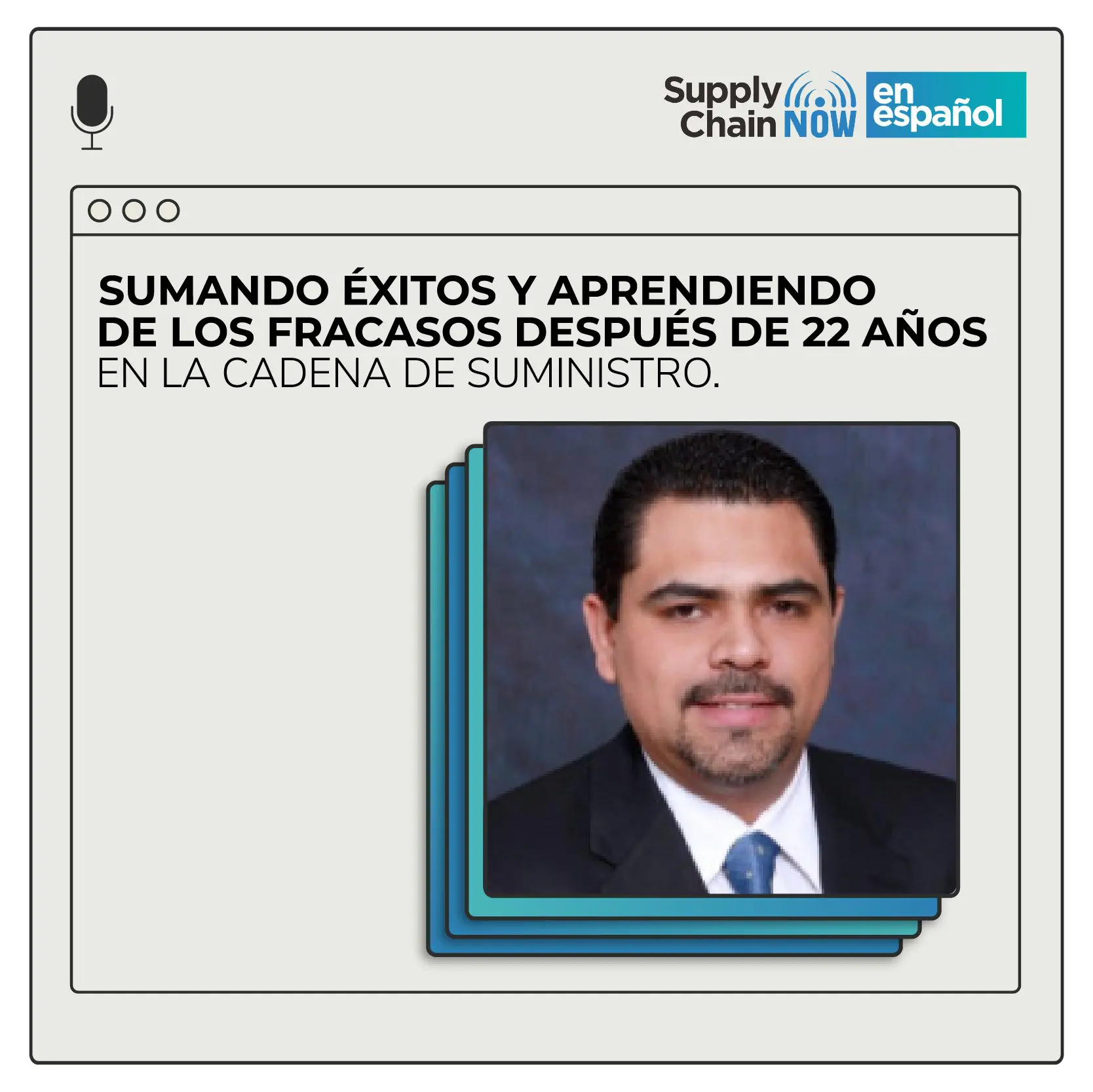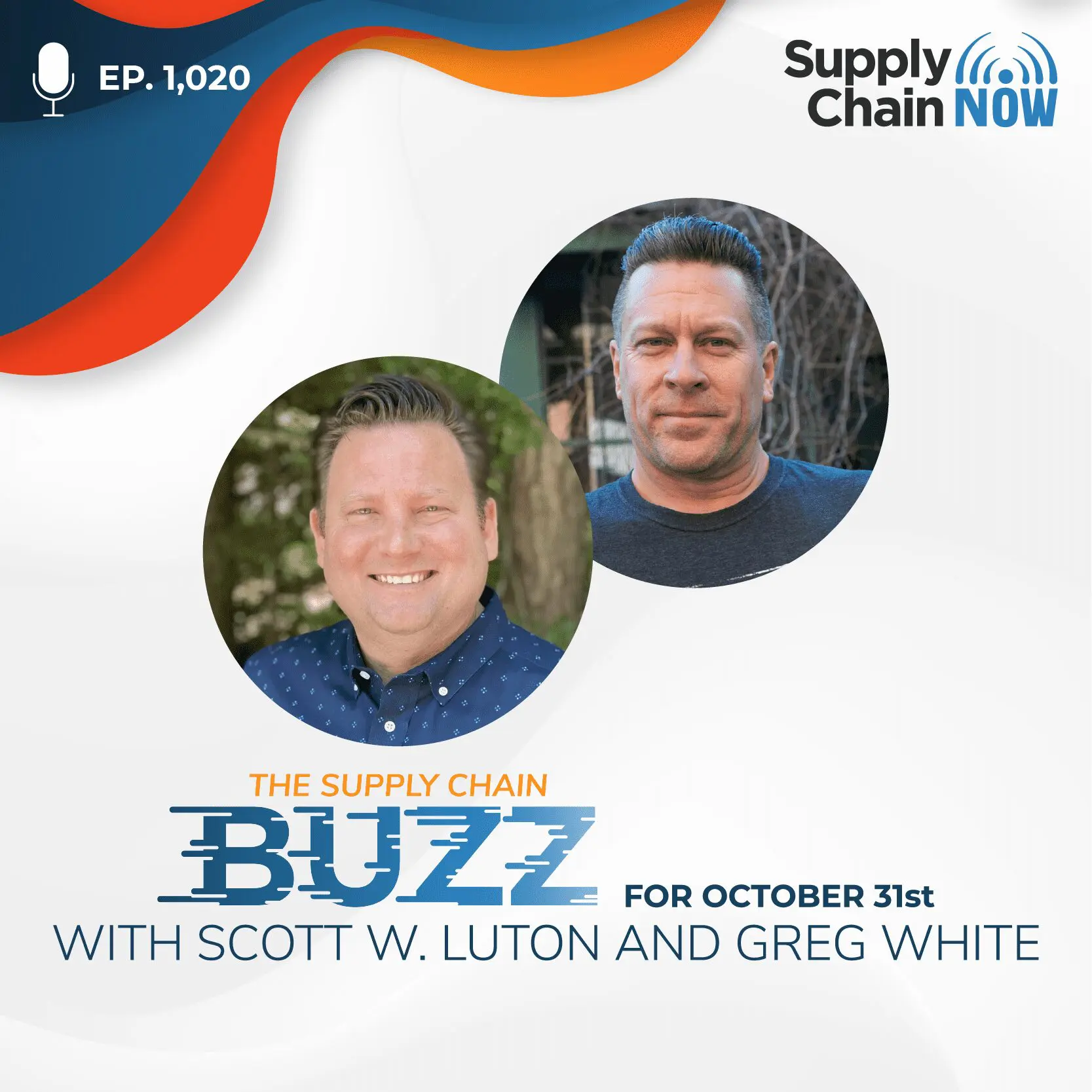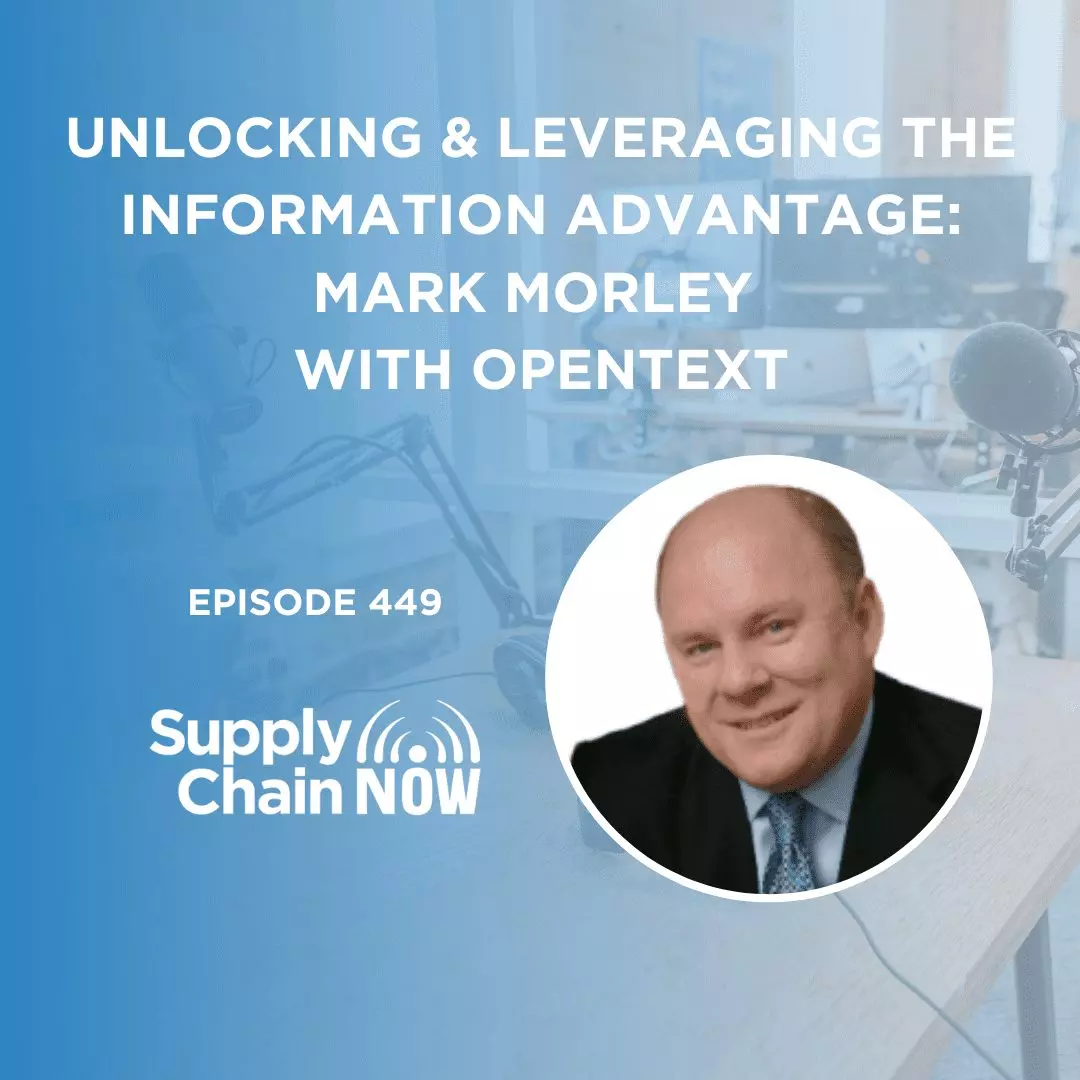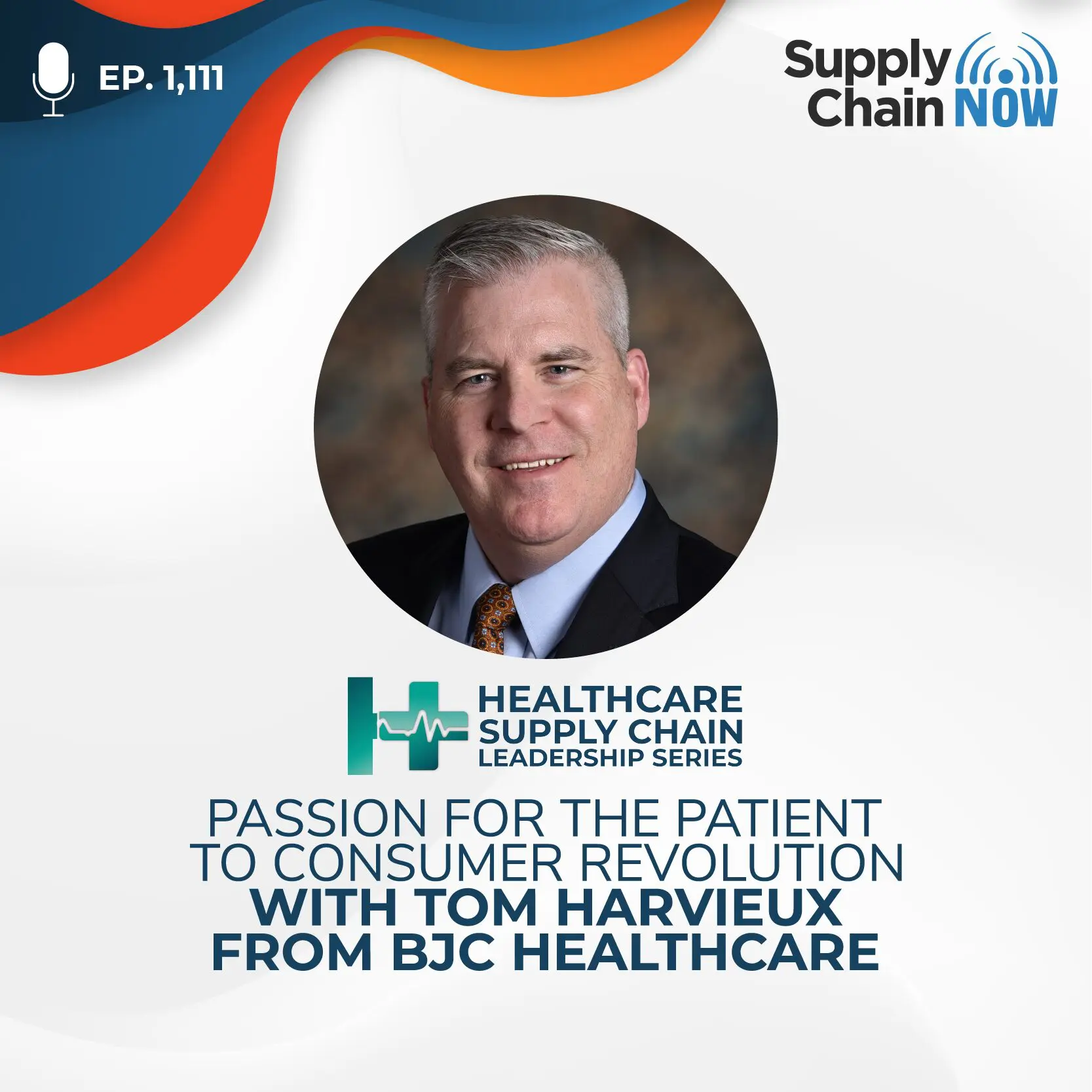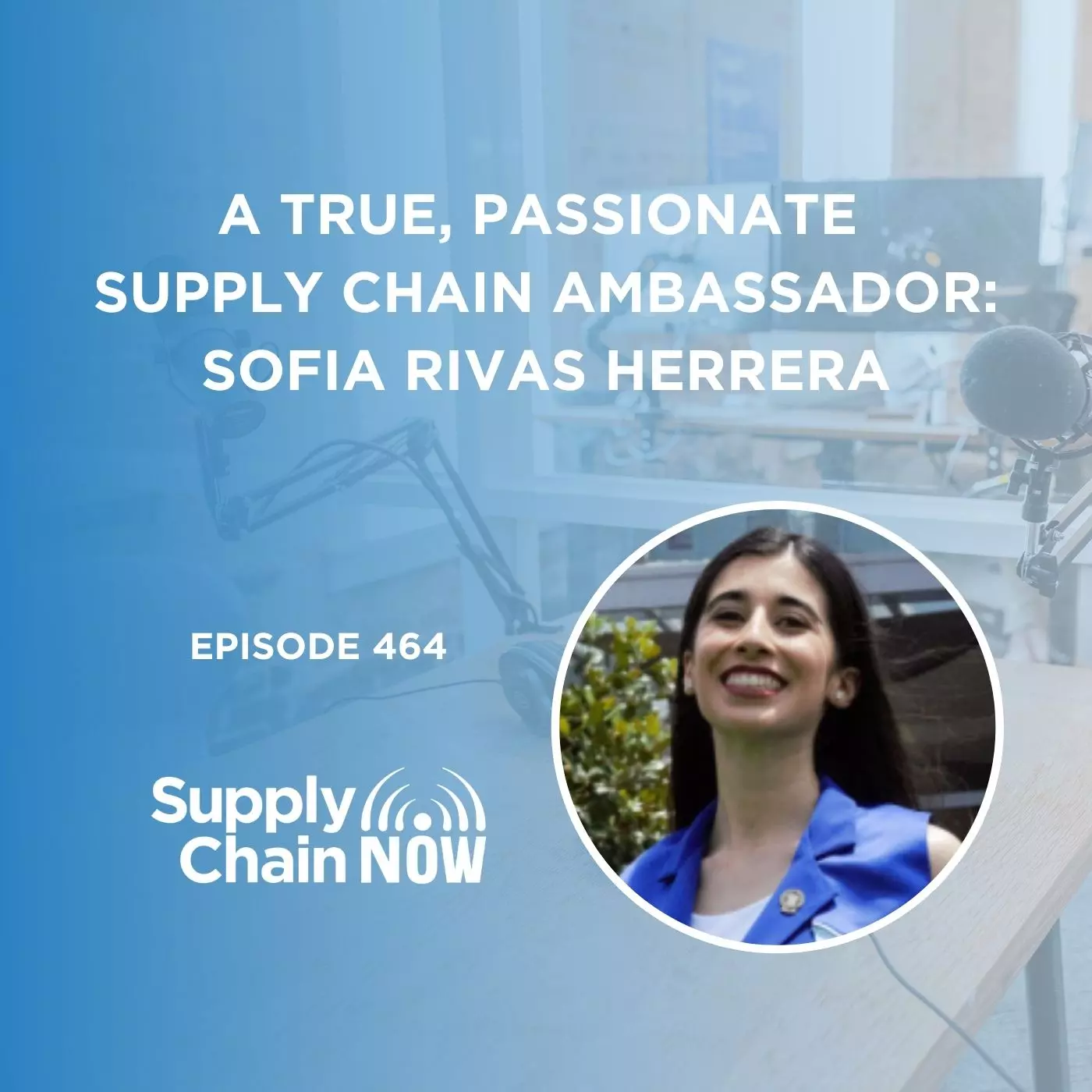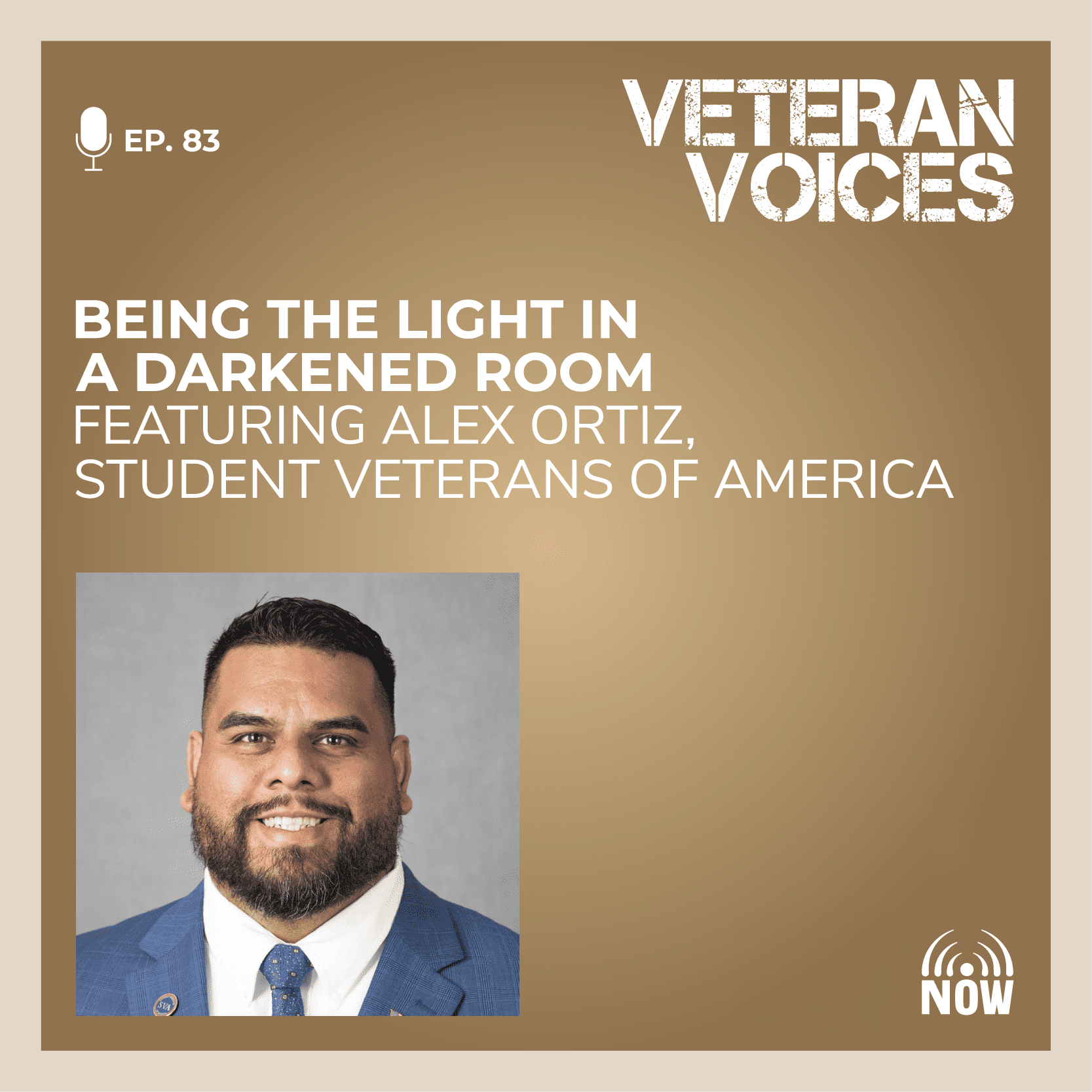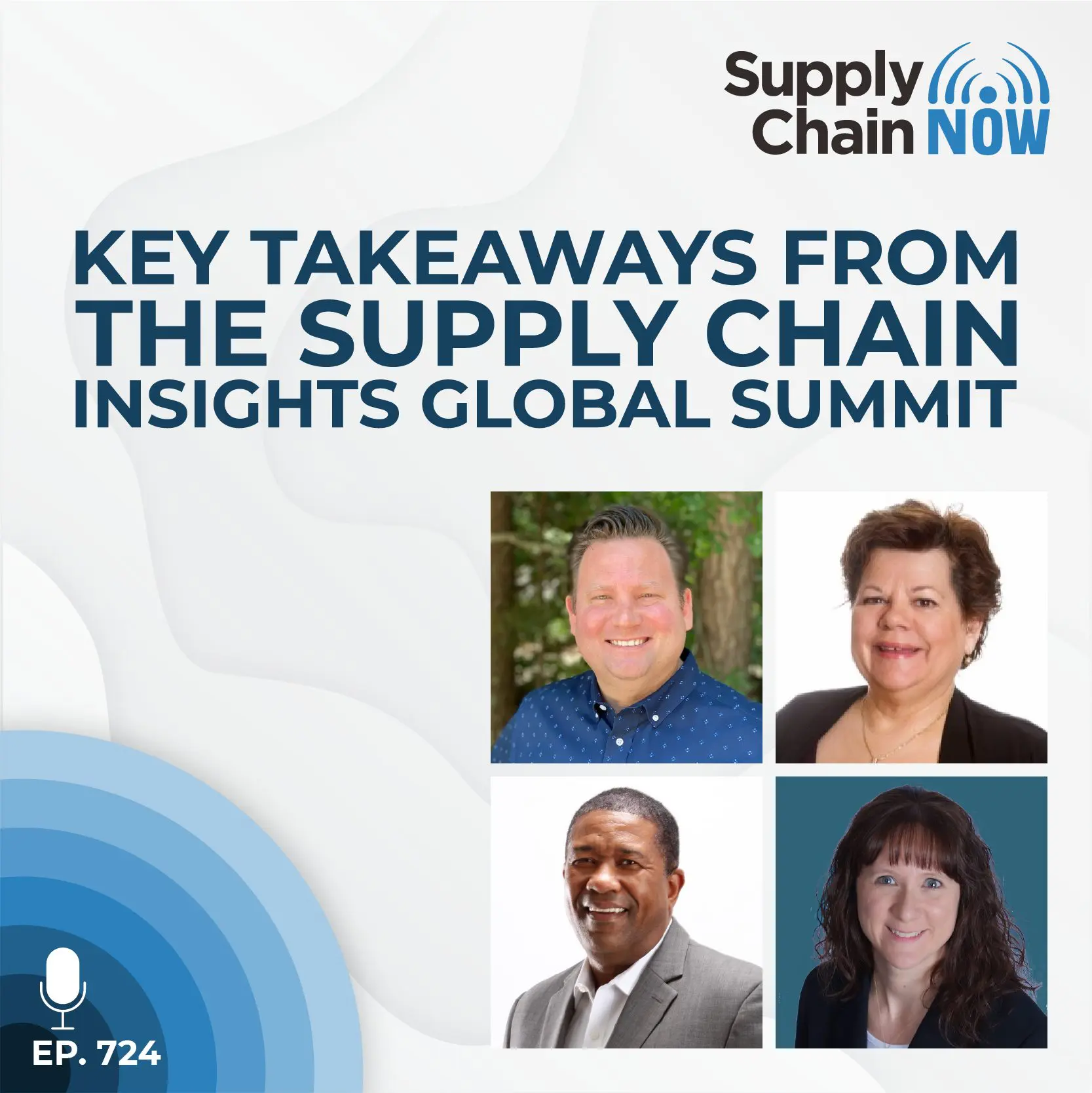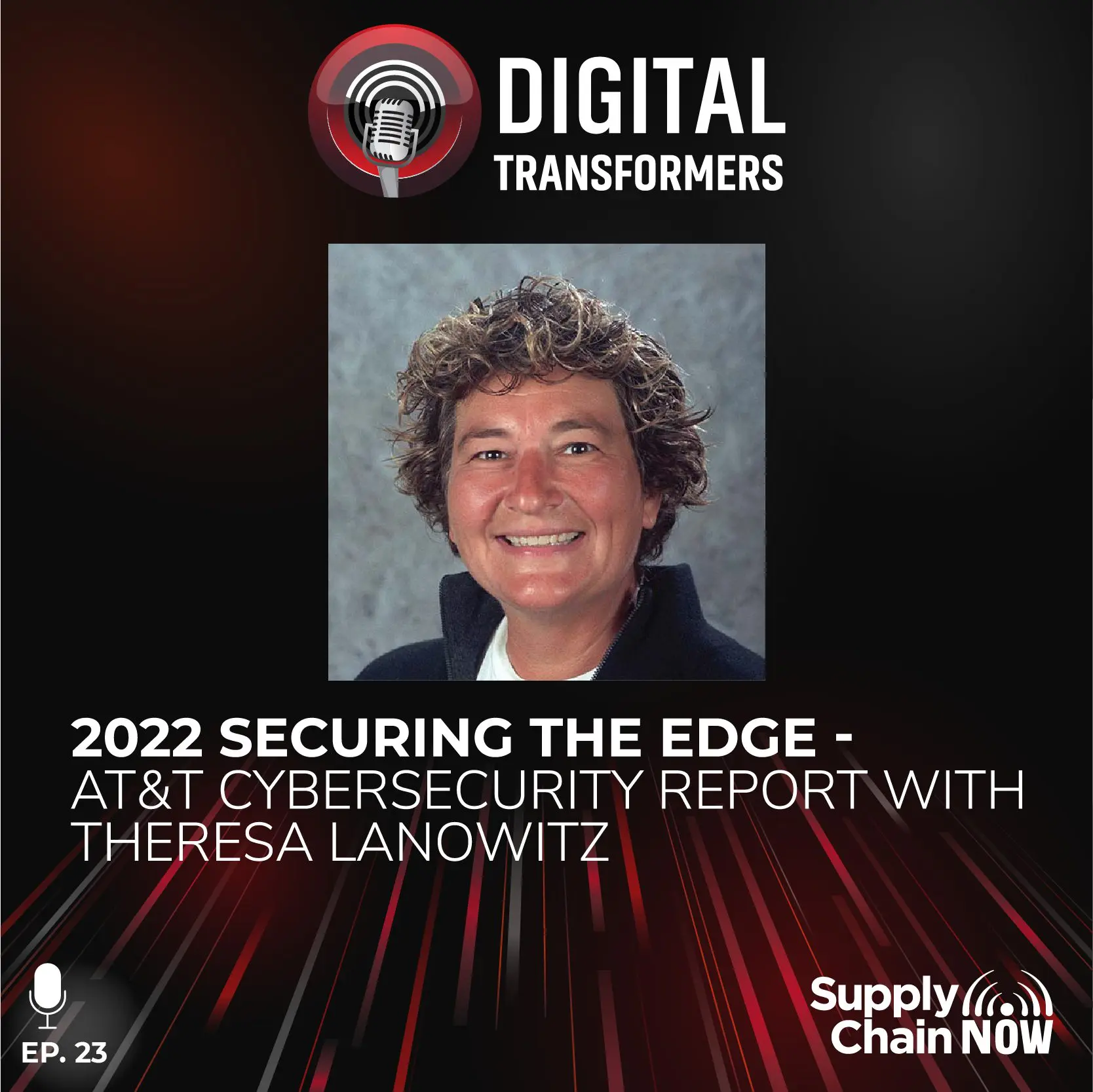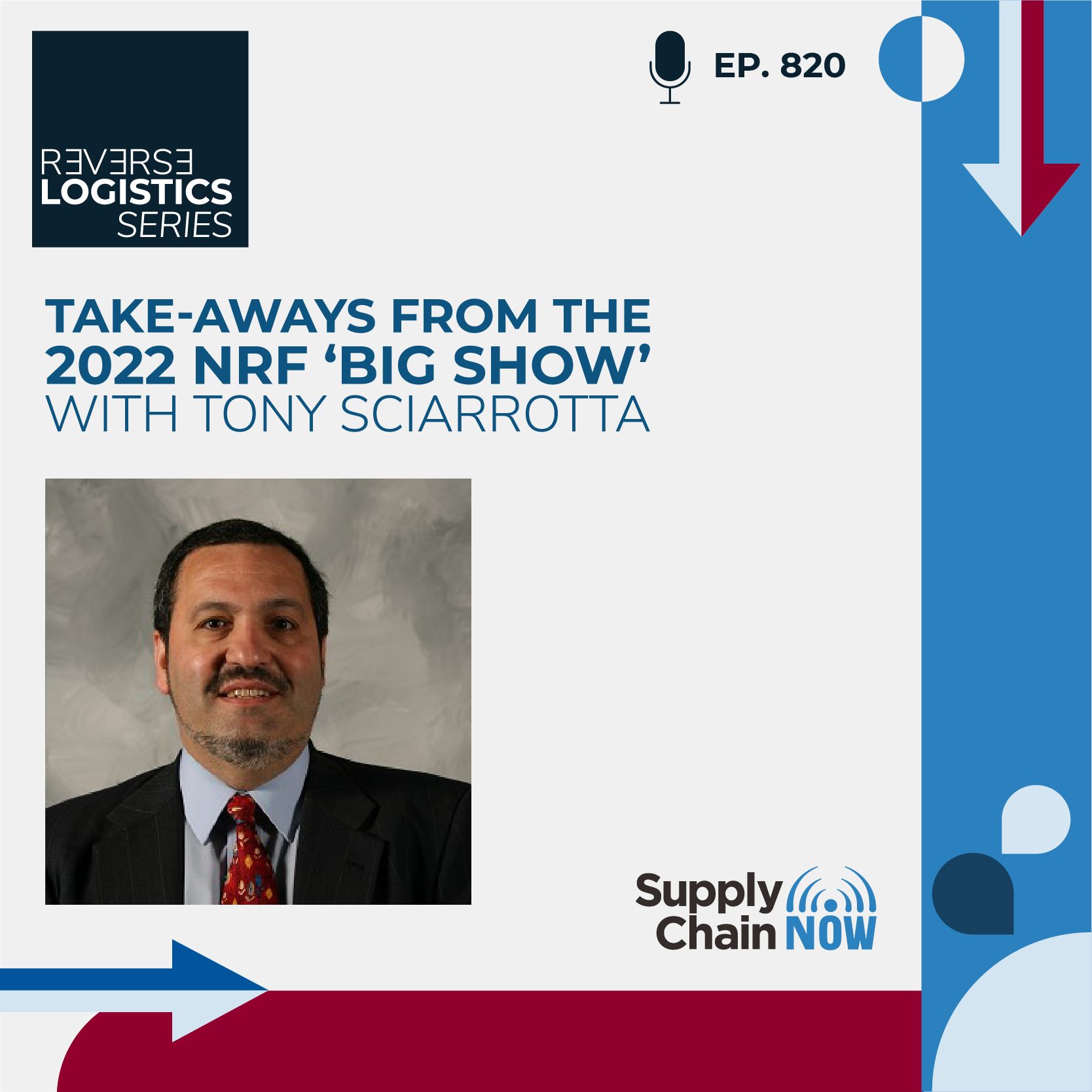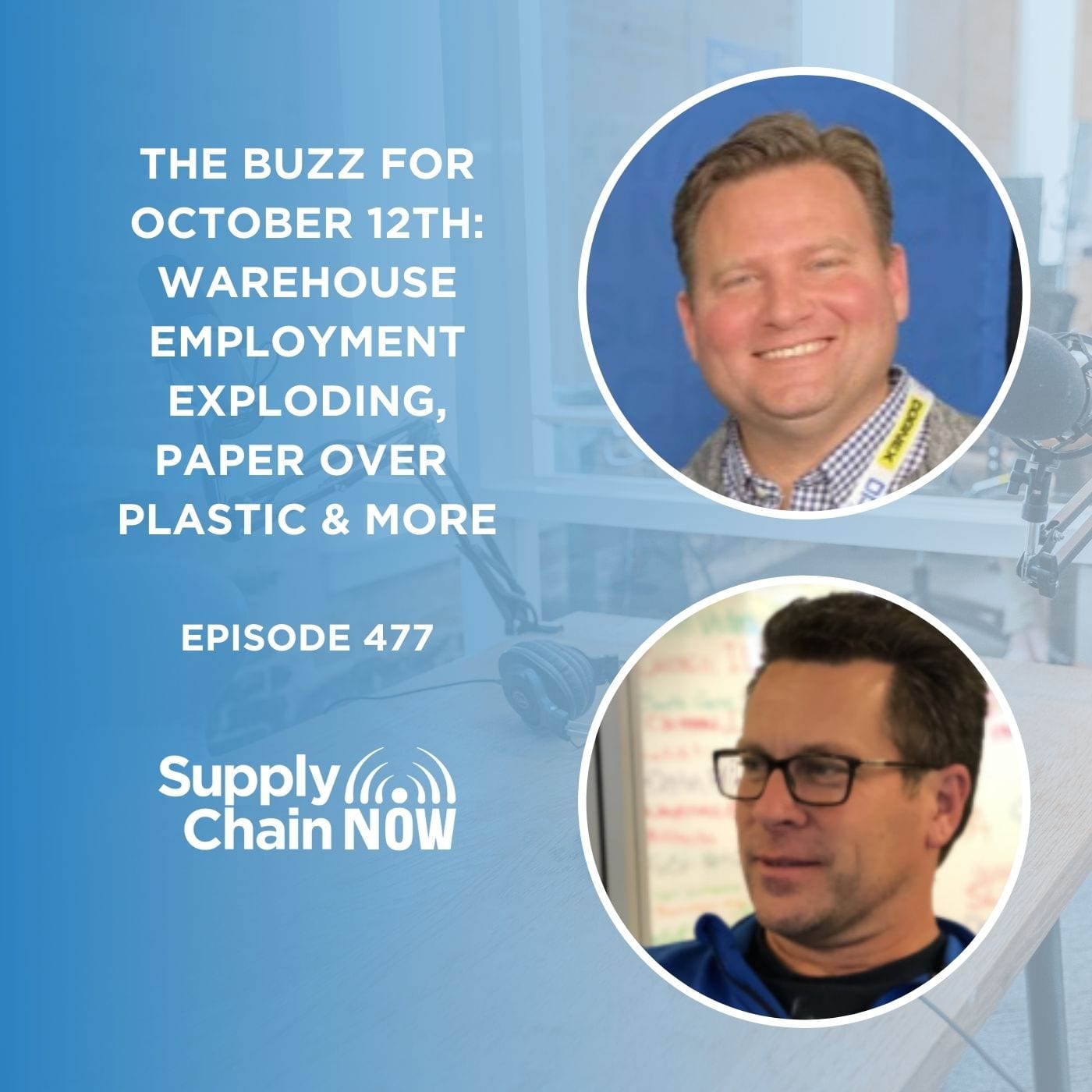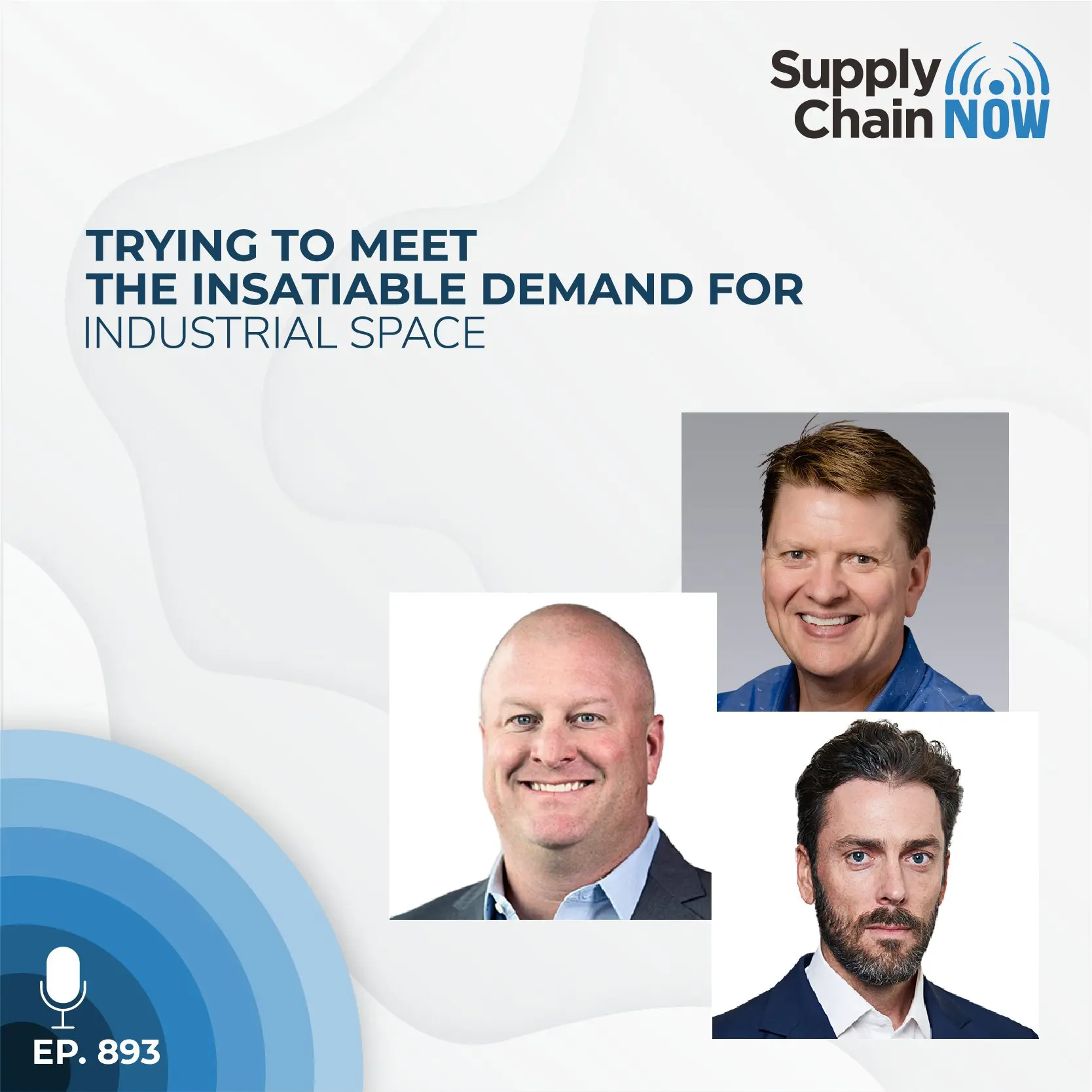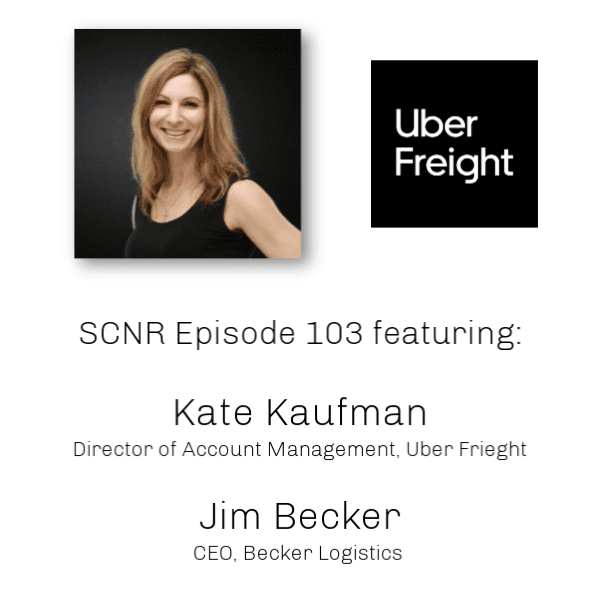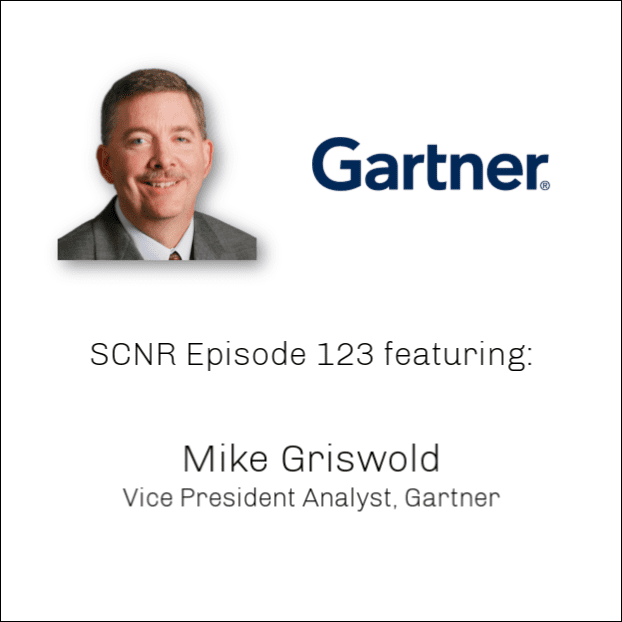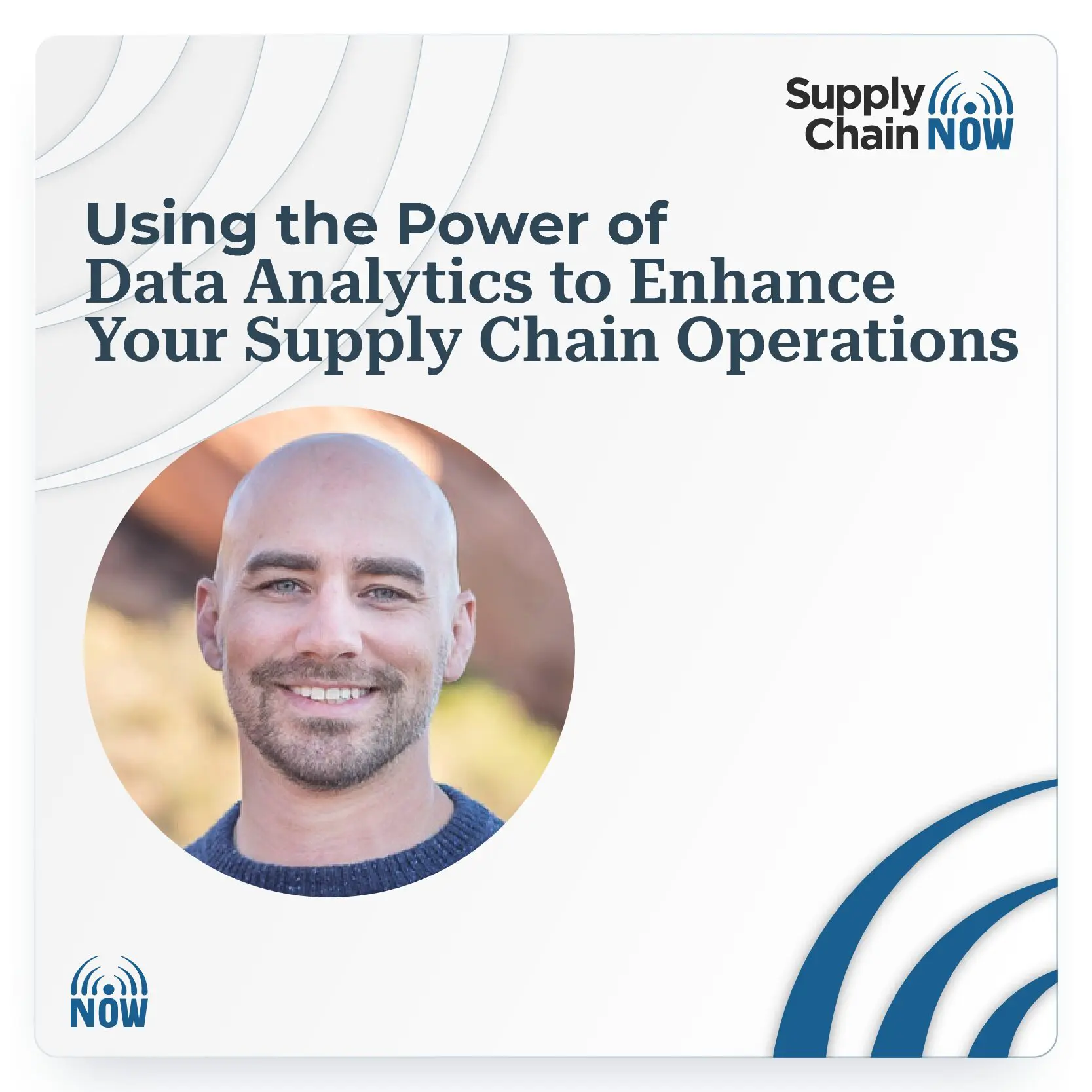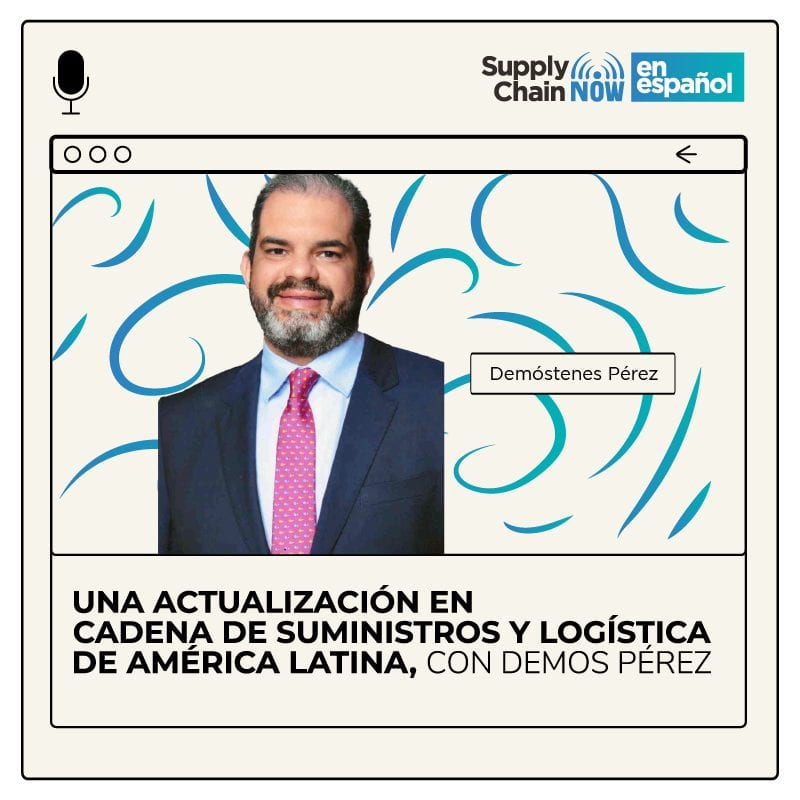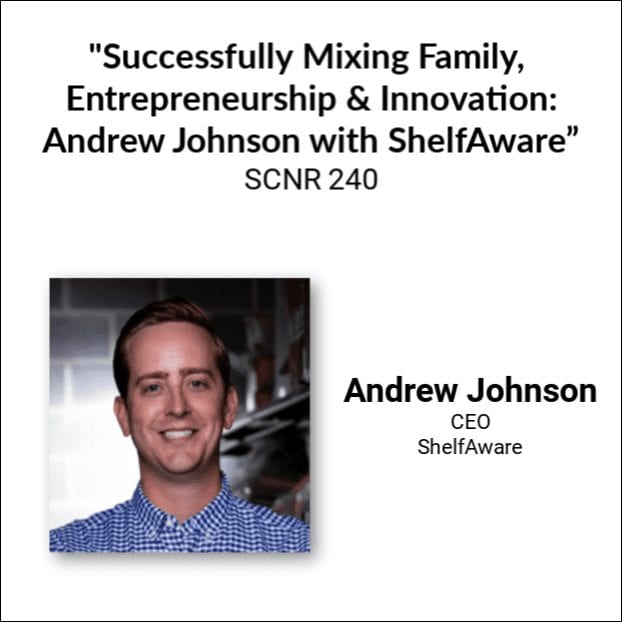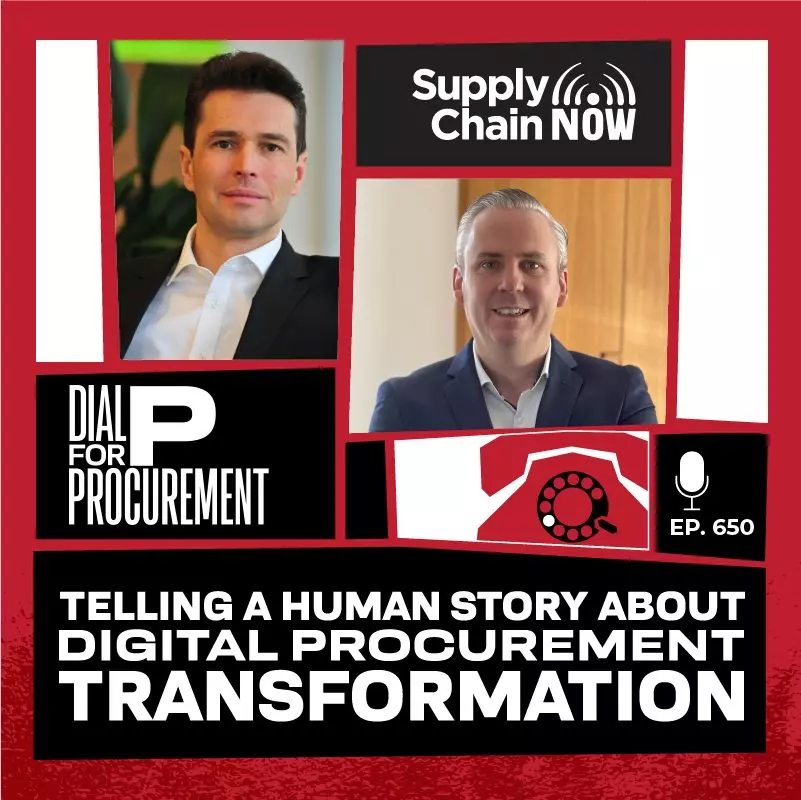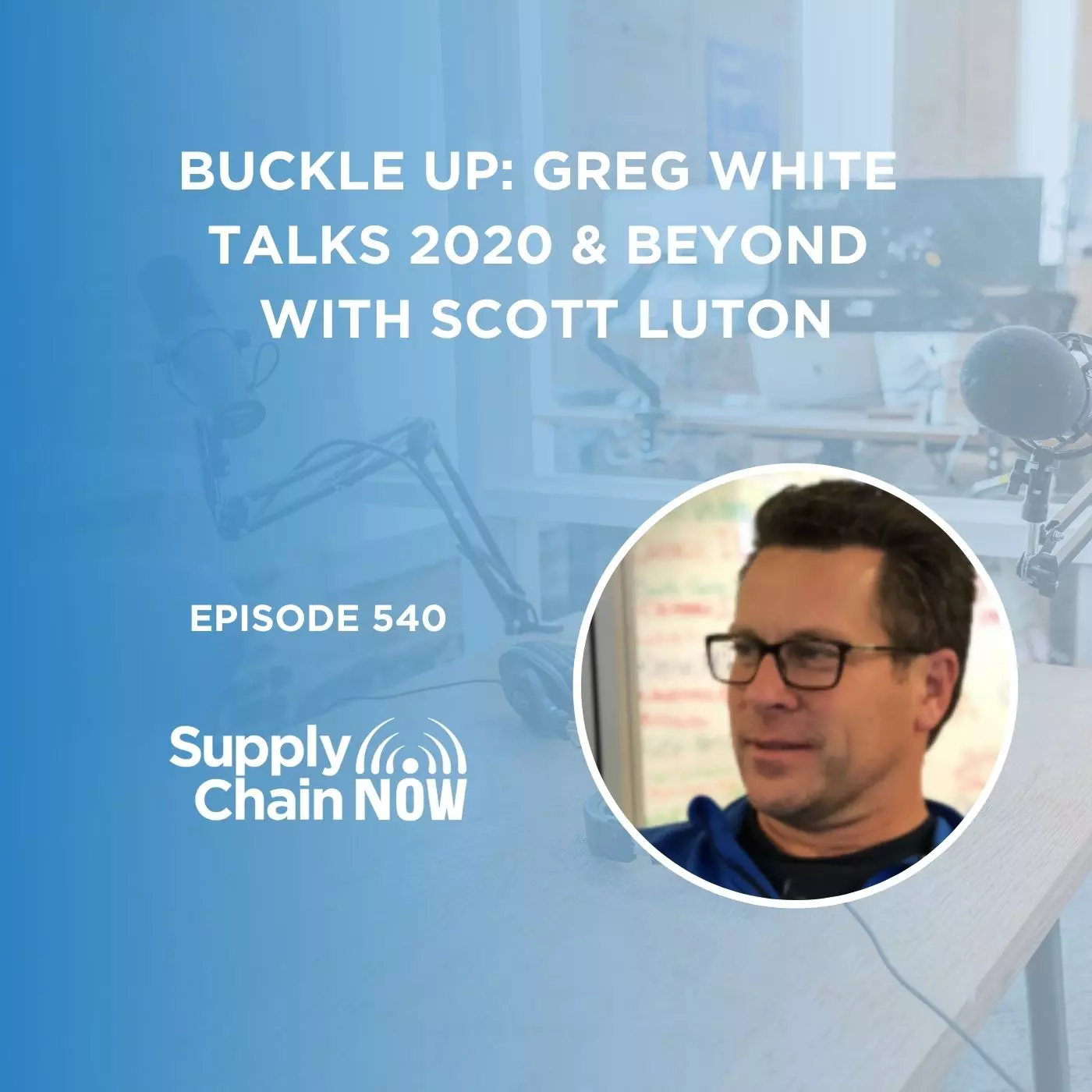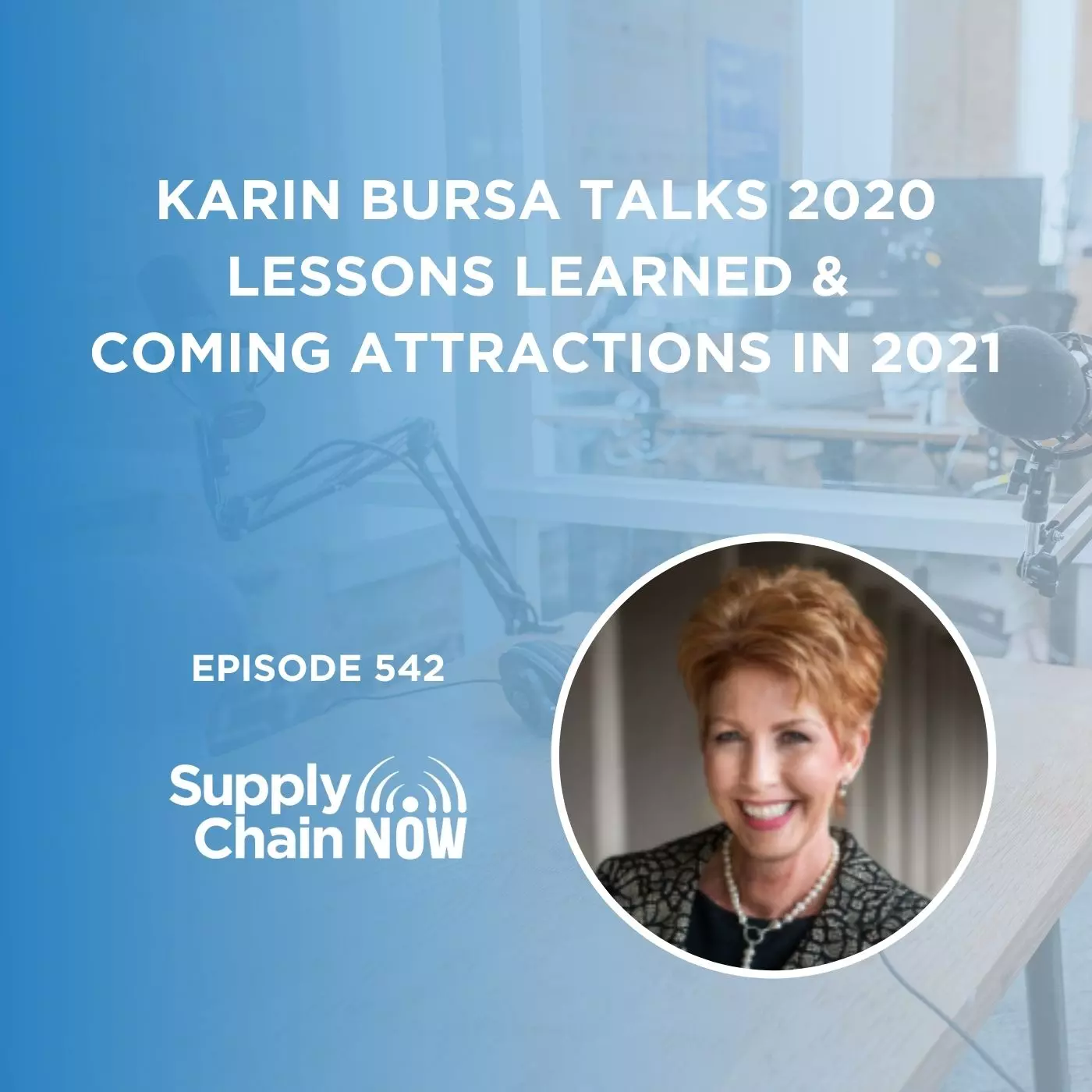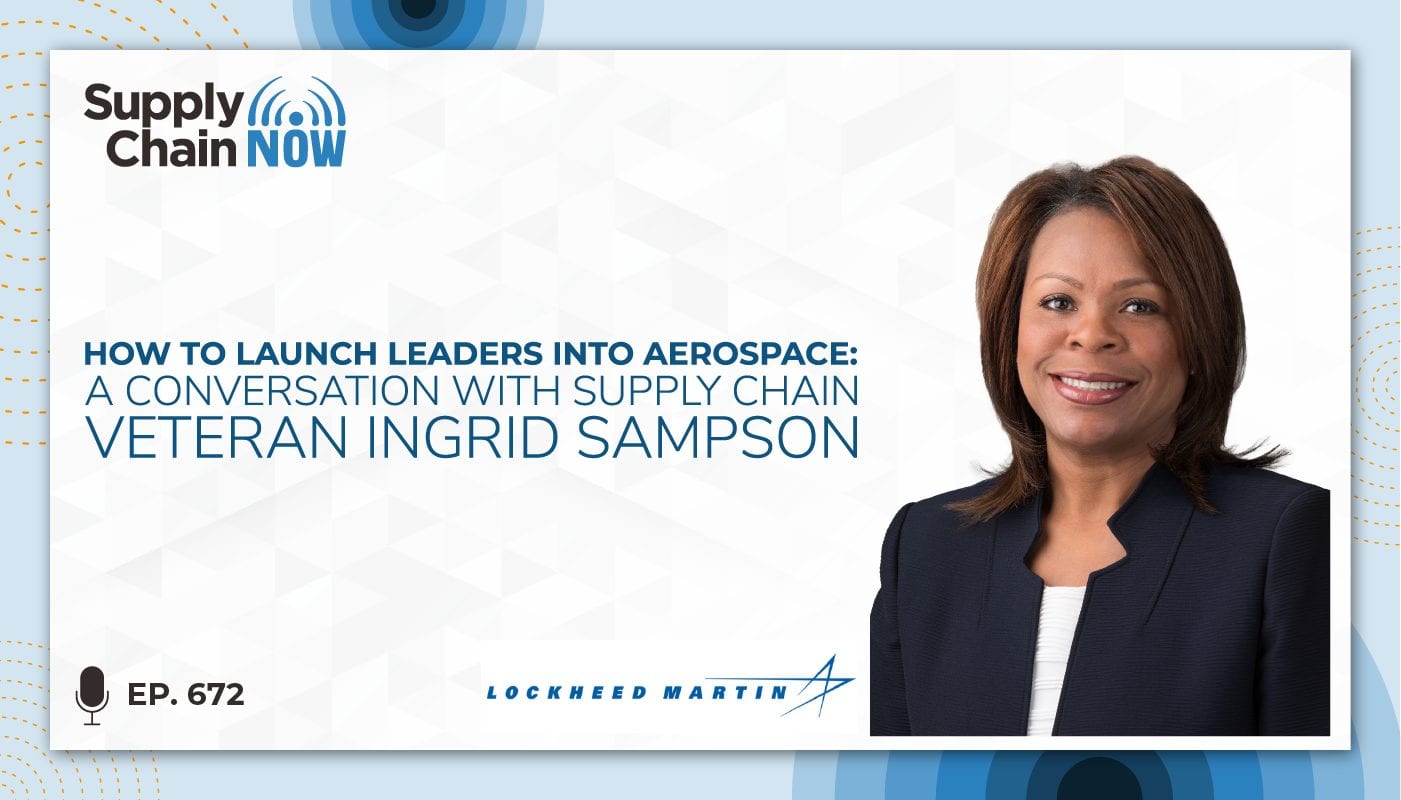
Episode Summary
“30, 60, 90 is our normal rhythm right now. My team is looking six months ahead. Six months to say, do you have everything you need, and if you don’t, where are they? When it is coming forward? What can we do to help you utilizing some of our purchasing power?”
-Ingrid Sampson, Director of Program Management Subcontracts for Training and Logistics Solutions, Lockheed Martin
When you think “easy,” you probably don’t think “managing $2B in procurement for an aerospace and defense company during a global pandemic.” But with 26 years at Lockheed Martin, Director of Subcontract Program Management Ingrid Sampson is more than up to the challenge. We sat down with her to discuss her illustrious career, top lessons in leadership, the importance of building diverse supply chain teams, the keys to risk mitigation, impact of new supply chain technologies and more. Don’t miss this fascinating conversation with a true leader in supply chain.
Episode Transcript
Intro/Outro (00:03):
Welcome to supply chain. Now the voice of global supply chain supply chain now focuses on the best in the business for our worldwide audience, the people, the technologies, the best practices, and today’s critical issues. The challenges and opportunities stay tuned to hear from those making global business happen right here on supply chain. Now,
Scott Luton (00:31):
Good morning, Scott Luton right here with you on supply chain. At welcome to this episode, we’re really excited about this episode. We’re going to be diving into supply chain, risk management, and a lot more leadership with someone from the aerospace industry. Someone’s been doing it for quite some time. Uh, we’re going to really work hard to raise your business leadership and supply chain accurate right here today. So stay tuned for what’s going to be an intriguing and very informative conversation. A quick programming note. If you enjoy this episode, be sure to find supply chain now and subscribe. So you don’t miss any conversations just like this one here. Um, all right, so we’ll welcome in our guests here today. I’ve really enjoyed our pre-show conversations. Uh, wide ranging. I’m telling you y’all are in store for a lot of learnings here and some very helpful best practices.
Scott Luton (01:18):
Ingrid Sampson director subcontract, program management at Lockheed Martin Ingrid. Good morning, good afternoon, whatever time it is and your negative. Wood’s good to see you. Good to see you also sky. So really enjoyed our, our kind of our pre-interview call. Uh, I’ll tell you, we need about six hours, uh, to, to really get all your perspective out, but we’ve got about an hour today and I’m really excited to learn more about you and share your perspective with our, our global community. So before we get to the heavy lifting, let’s get know Ingrid Samson a little bit better. So tell us, where did you grow up and, and, and give us some anecdotes from your upbringing.
Ingrid Sampson (01:55):
So, um, the cool thing is I grew up in LA and having, um, uh, come from Georgia, uh, and I have to differentiate not lower Alabama, but Los Angeles. And, um, so I was a child in the seventies and was able to roam around freely. My mom gave me all the independence in the world, and so, um, I grew up just exploring, um, and at seven I traveled for the first time and I’ve been traveling ever since, right? So this sense of I can get on my bike and ride anywhere I can get on a plane and go places. Um, at a young age was, um, part of my DNA. And when that, you know, well did well in my career itself and having traveled all over the world for, for Lockheed Martin.
Scott Luton (02:42):
So it sounds like your parents and specifically your mother really encouraged you to get out there and kind of experience things.
Ingrid Sampson (02:49):
Yeah. And it’s interesting. And I mentioned mom, but my dad worked for Lockheed, so I’m a second generation Lockian and, um, he bought like I’m doing now. And, um, and so he encouraged me to start at Lockheed, but to explore different things. So I did leave for a bit and do some cells and, you know, kind of mixed it up a little bit, um, and sold, um, commercial card products related to purchasing and then came back to Lockheed Martin.
Scott Luton (03:16):
Okay. Is that pretty common for, uh, the company to have second and third generation family than the company? Oh my
Ingrid Sampson (03:23):
Gosh. Yes. It’s common to have people with over 25, 30, 40 years just celebrated 40 year anniversary. One of my employees the other day, and he’s not the only one on my team. Um, and to have second and third generations, if it’s very common and then I’ve got, um, people in my team whose children also work awkward right now. Right. You got two generations working at the same time, so yeah. Very common. Yeah. So
Scott Luton (03:48):
We’re going to be talking about some of your, um, positions as part of your journey that helped shape your worldview in just a second. But yeah, I imagine when, when I, when I talk with the organization leaders that have that great advantage, uh, of, of tenure, right within the workforce at these great big companies, that tends to be a double-edged sword, right. Because from a cultural standpoint and a family kind of that family and the values it’s there and continuity and other things. But on the flip side, I would imagine, let me get your take. Does it kind of, um, just a little human level, you know, kind of how we’ve always done it is probably part of what’s between the ears. Can you speak to that for a second? Yeah, no. And
Ingrid Sampson (04:25):
I mean, the reality is changing. Um, the employee, I was talking to yesterday twenty-five years, another one 40 years, and I’ve got 26 years lucky Martin. Um, and I left for seven and it was common to come and stay with the company or stay with the corporation for a long time. The reality is it’s different and we’re feeling it in the workforce right now where I have a pension, those coming behind me right now, aren’t don’t have a pension. So, um, there’s a different frame of mind, right? Where they’re chasing salary, they’re chasing the money because the pension is in there and right there build up themselves. Um, although we’ve got programs that the company does matching it, doesn’t compare to a pension, right. So times have changed. And so you’re not going to see people stay, um, with one company as long now, what we are seeing. And it goes for the just pure size. And the complexity of the products we offer is within Lockheed Martin, people are moving from one business area to the other, right. They’re staying with Lockheed Martin that are going from airplanes to helicopters, to missiles, you know, to trainers, to there’s just this wide array of products that you can stay within the corporation and move around. And that’s really our preference, right. Rather than losing that talent and having to start over. But we also know the lucky Callan is valuable to them. Right.
Scott Luton (05:48):
Especially that well-rounded, uh, uh, element that you’re kind of spoke to earlier. So love that. Um, okay. So let’s talk about, you know, you just, I think you just said 26 years with lucky Martin, you’ve got seven, um, maybe outside the company, is that right? All right. So let’s talk about, um, roles, positions, certain stops in your journey that really helped shape your worldview. Ingrid.
Ingrid Sampson (06:13):
That’s a great question. Um, I think starting at Lockheed at a young age out of college, um, the sheer responsibility we have, um, as a buyer, I was responsible for millions of dollars. And I was part of the team that won YF 22. That was the highlight of my career. That’s the one of the coolest aircraft. I even say second to the F 35. I love two. I grew up on it.
Scott Luton (06:37):
I agree with that. As a, as an air force veteran and a big nerd of military aircraft, I wish we had 2000 or 10,000 F 20 twos. I think it’s a gorgeous and incredibly capable
Ingrid Sampson (06:48):
Aircraft. Yeah. And the performance. And I remember being there on the first flight and haven’t been a buyer and I’m looking at it, you know, my components on that, on air, on that aircraft, I have the transparency. I had all the lights. I had the hydraulics, I had all these pieces, right. This is my plate. And that plane took off that first day. It was like such a proud moments when you talk about highlights of your career, but I’ll never forget the landing gear didn’t come up when the plane went up, but oh my God, what’s wrong. Right. That’s my part. We have it. And I’m looking at the engineers and they’re all going, you know, and they came down safely, of course, but it was just the ownership that comes with the type of roles and responsibilities that we have. Um, I had the pleasure of starting up the P three line P three aircraft. It’s been around for a long time, many generations. And we were extending the life of the aircraft, building new wings, old technology in the midst of new technology. Think about the challenges that went with that. Um, I had the pleasure of working in ethics. I was the ethics, um, director for aeronautics for two years. And you talk about seeing a different side of the business, right. Things people do, how the company reacts, maybe did you risk. It was just, it really rounded up my experience really well.
Scott Luton (08:04):
Can I ask a quick follow-up question really quick, Ingrid. Um, I think perhaps many of our listeners much like I, when I hear the word ethics, I bet we have no sense of what that leadership role, what, what, you know, what you had, what you did to fulfill it. Can you, can you just shed a little more light on what some things you did in the ethics role?
Ingrid Sampson (08:24):
So here we call it ethics and business conduct, um, in our value statement is do what’s right. Respect others, and perform with excellence, eight words, how simple can it go? And so our business conduct is around those eight words. And so we have what we call investigations like any other ethics department, but we also have where we do just counseling someone, wanting to know how to handle situations, you know, or true investigations. And I’ll tell you coming into the role without an ethics background, I was taking ethics courses, getting training, right? There’s certifications that go with it. There’s people that come up through security and investigations and FBI and attorneys, and, you know, it’s a well-rounded, um, area and field people with different backgrounds, but you’re handling and addressing all kinds of situations. It’s not just, you know, performance it’s leader, individual performance is leadership performance.
Ingrid Sampson (09:20):
Did they perform, did they react to situations? It’s leaders being investigated? It’s individual contributors. I’m thinking about it. We do manufacturing and, um, a represented employee, you know, sometimes handles things differently than a salary employee. So the dynamics that go with this, what do you report to the corporation? What does the corporation report to the outside world? When it comes time to the reporting performance? It’s, it’s huge. It’s a really, really interesting world, but one where people are looking for immediate response and everybody knows what they want. Right. We want you to find them guilty. We want them to be terminated and that’s not always the case. Wow.
Scott Luton (10:02):
I’ve got such a big blind spot in, in that, uh, that corporate definition of ethics. So I bet you could write a book on some things you’ve seen. Um, but let’s keep you, you were kind of answering some of those positions that really helped shape your worldview in this journey. And anything else you went bad before? We kind of talk about what you’re up to now.
Ingrid Sampson (10:19):
I mean, growing up in aeronautics, doing airplanes, um, and then coming here to, um, training logistics, sense solutions, TLS it, I never thought about, you know, how are the, well, the war fighters, you know, how are they trained? So building aircraft, you delivering to your customer. And you’re like, okay, great. Well, this side of the world enabled me to be able to understand, well, how are they trained the maintainers, the pilots, you know, and it’s just as simple things as their pilots suits on the a 35, right? The pilot suit and the helmet to each, every single thing into each pilot, getting to that level of detail and recognizing training saves lives, right? You don’t have to train in an aircraft. That’s worth hundreds of millions of dollars you can train in and simulator. And it’s grades of, of, um, training that they’ll go through what we call, um, just at a computer terminal. He’s an I-PASS right. And rating of two, you’re going to a simulator, a whole motion simulator that gives you the full, like you’re sitting in an aircraft, those types of things. I had never thought before coming into this role and how exciting is that? Right. Simulators and futuristic and training and lasers. And it’s just exciting stuff. So I’ve enjoyed it. I agree
Scott Luton (11:37):
With you, man. Um, all right. So let’s see. One of the questions we’ll ask him folks, um, is that your Rica moment? We have, we have plenty of them and these days we might have one a day, I’ll tell you. But what, when you look back at your journey thus far, what’s been a really powerful Eureka moment that you’ve had.
Ingrid Sampson (11:52):
I think it was, I got it, um, became interested in leadership and moving from individual contributor or a buyer into leadership. And it, wasn’t just the, I want to be a leader it’s really about having the support to go into leadership, right? And so you hear people talk about mentors or sponsors and champion the importance of that champion to move along in your career. And one of the aha moments, and you’re going to laugh at this, but it’s a true story. I’m interviewing for a director role. Um, and it was not my best interview. Everybody was laid. Um, you know, just all these things that when you’re all prepared and everything’s supposed to go, correct, everything went wrong and it was not my best interview. And I left there going, oh my God, this is just horrible. There’s no way I’m getting this job. But my champion was also in that room and he knew what I was capable of all the wasn’t the best interview. And so I, I got the job and he gave me feedback as to, you know, what I’d done wrong, which I already knew because it was not the best interview, but it just, um, helped me, you know, as a leader, being a mentor to people, we’ll also be in champions and sponsors individuals, how important it is to the trajectory of your life.
Scott Luton (13:10):
I love that I’m not laughing at all. I think, um, I think sometimes we as leaders and, and as maybe hiring managers or, um, you know, you, you name it across the spectrum. We might let that last interaction have carry way too much weight and not look at the potential that folks bring to the table. So I really appreciate you sharing that also, you know, on your email, you got a great quote because I think about leadership, uh, not waiting for others to do we do. And so you’ve got a great quote here from Barack Obama, president Barack Obama, quote, change will not come if we wait for some other person or some other time, we are the ones we’ve been waiting for. We are the change that we seek in. Quote, why is that so important to
Ingrid Sampson (13:55):
That’s important to me because in this environment where, um, diversity and inclusion is so important, right? People want to not only be included, but you know, an offer to seat at the table when they’re sitting at the table, they’re what they’re forced to be heard. And so, um, as a leader in making sure that that is truly represented in what I do and say, but also in my team is very important. Um, and there’s, you know, numerous studies out there that are referencing and have proven the power of diversity and the performance of a team. And so to walk the walk and talk, the talk is very important to me. And so if I go back to mentoring champion and sponsoring, you know, and mentoring, championing, and sponsoring of people who look like me, who don’t look like me, or it’s very important, and that my team is representative of the community in which we live is important to me. Wonderful.
Scott Luton (14:52):
And we’re going to talk more about that here momentarily. Uh, appreciate your, your comments there. So let’s, um, for, you know, we’ll have some folks, uh, you know, clearly you and I are know Lockheed Martin very well, and of course [inaudible], and, um, I wish we had a snapshot of when that first F 22 took off as you were describing, cause that I can only imagine the immense pride that you and really the whole team took in that. Um, and, and, and how those, those aircraft are used, um, you know, to protect the country and project force and, and really project freedom, uh, globally not to be too dramatic, but, uh, that’s, that’s what I believe. Um, so let’s, let’s talk about, you know, what do you do at Lakita as a director of subcontract program management, a Lockheed Martin? What do you do?
Ingrid Sampson (15:39):
So I’m in the business of TLS training, logistics solutions, I’m responsible for, for all the procurement we do for all of our products and services. So when you’re talking about a million and a half to $2 million, billion, excuse me, billion spent annually, right. Um, it’s a lot of responsibility that goes with that.
Scott Luton (15:57):
So Ingrid, uh, you’re just, we’re talking about the massive responsibility, have billions of dollars. Goodness gracious in your role at Lockheed Martin, but what is your, um, what’s your favorite aspect to your role? W what’s what’s that favorite part that you you’re, you’re able to do, you know, week in, week out, day in, day out, what have you,
Ingrid Sampson (16:16):
Well, it’s two things. One, it’s the people building this team of just stellar performance. Um, and two, the impact we have on the business, the reality is we purchase about 70% of everything that we sound. And so with that comes a huge responsibility and the thought that, um, I contribute to the profit and loss of that business right of my business, by how we perform is so important to me. And I’ll tell you to my team, they know my number one priority after people is that we perform and that we always perform and meet the customer requirements. And we’re never the reason that something does it, you know, meet a customer’s requirements where it doesn’t deliver doesn’t work. You know, it’s just important, um, that we always perform. And last year on top of COVID a pandemic telecommuting and everybody going home on March 18th, we had seven months of no rights of contractors. So when you talk about performance in the midst of the hardest time of my whole career, we were able to perform because of the things that we do on a daily basis and looking forward, managing risk, understanding, risk, those things. Um, and so the performance and contribution to the business success is super important to you. Um,
Scott Luton (17:36):
I appreciate you sharing and, and, and really when teens perform that’s when we’re able to offer, uh, opportunities above and beyond.
Ingrid Sampson (17:44):
Right. Surely, surely.
Scott Luton (17:47):
Um, all right. So I want to shift nap. Um, let let’s talk. You were talking earlier, you know, diversity and inclusion. Uh, clearly you’ve got a long track record of, of very successfully building diverse teams that do perform alright. And, and clearly, like you just stated people come first and performance is a close second. So I love that. But if you could offer some best practices from your, uh, experience in building truly successful diverse teams, what would you share with our audience here about
Ingrid Sampson (18:17):
That? For me, um, it’s not only diversifying the people and look at skin color, but experience. So a supply chain team to me that’s made of just supply chain, you’re limiting your ability to manage your risks and manage your own problems. So on my team, we’ve got attorneys, we’ve got engineers, we’ve got quality personnel. Um, we’ve got true supply chain degree individuals. My, my degree is in psychology, right? So you can’t tell me someone at a different degree can’t perform in this role, but it enables me to, you know, see things differently and be able to relate to people maybe in ways that other leaders aren’t able to do it. So to me, a truly diverse in experience and background makes us even stronger as a team, um, versus building from and building internally. Right? So billing external is as well as internal talent, um, just helps us perform in total.
Scott Luton (19:16):
If you had to pick one of the, the regular challenges, um, in, in your journey of, of building diverse teams at perform, w w w what, what comes to mind and, and, and can you offer any, cause I bet other folks are the leaders that are tuned in probably experienced that. How, I mean, what’s the biggest, one of the biggest challenges and how, how did you overcome that?
Ingrid Sampson (19:38):
One of the biggest challenges is I think coming into a group where there their philosophy was hiring within and bringing in individuals, bring in friends of theirs, um, bringing in, you know, the kids that they knew growing up, you know, and being very limited in the talent that we were seeking. Um, and so to the team, um, what I did early on was identify what were our challenges, right? Some of them was not contracts aligning with the prime contract. Um, some of them were risks. Um, these things that were hindering our ability to perform and then start filling in with people who had those experiences just made us stronger, but it was first getting people to recognize what the challenges were, you know, they’re my we’re doing great. Right. But when you’ve got mission success, milestones, which means these are reported to the corporate, which are reported to the board, you can’t miss those bite.
Ingrid Sampson (20:38):
It’s gotta be something just exuberant, um, that’s unrecoverable. And so, and picking up what our challenges, filling it with individuals with those experiences. I think it just made us stronger having to buy into that because they’re used to hiring the neighbor and the, you know, other people that they knew and they’ve seen him grow up and friends that were out of jobs, I’m going, no, that doesn’t work. That doesn’t make us stronger. Right. It makes you happier, but it doesn’t make us stronger. Right. Um, and once they bought into it and they saw how well we could perform in that we could manage our risks versus realizing our risks. Um, the buy-in from there has been monumental and I’ve gotten a couple of comments when going through, um, Obama reviews. And they’re like, wow, I never thought about approaching a problem like this. Right. And then partnering with the functions.
Ingrid Sampson (21:29):
Right. Um, that impact our ability to perform because you think about supply chain, it’s a capture, it’s the closing, the capture, it’s the, um, identifying what, um, bill and material or planning goes with that it’s, you know, all these things. And then they say, okay, now go buy it, the technical requirements. And so we’re there at the last of the totem pole, but at this point, all the pressure is on us to perform. And so we started partnering with those functions that were hindering our ability to perform engineering contracts, capture, you know, I’ve got someone on the capture team now. And so those things, um, for any leader, I think understanding what your challenges are and then going about, uh, mitigating the challenge and making it a strength is what has enabled us to perform
Scott Luton (22:20):
And being candid and honest with yourself about that. You know, you were kind of talking earlier about that Frank assessment of the current environment, and you can’t, you can’t wear rose colored glasses that doesn’t help anyone.
Ingrid Sampson (22:33):
I really appreciate it. Customers looking at you like, wait, this doesn’t meet our needs, or this is late. Or, you know, that’s just not good. So,
Scott Luton (22:40):
You know, from where at least my, my opinion here, you know, risk management for years now has, has been, has been added, you know, given a seat at the table. And we see companies hiring, you know, chief risk management officers, chief risk officers and whatnot. And then of course the pandemic has really, uh, there’s been a lot of risk in and the collective blind spots of industry. So there’ll be a lot of doubling and tripling down. How do we effectively, you know, um, put in place our risk management strategy and then, and then actively and successfully manage that. And then I know, you know, from our earlier calls, this is an area of passion and true expertise for you. So if you were to offer a couple of best practices and suggestions around, you know, effective and successful risk, risk management for our listeners here, what would that be?
Ingrid Sampson (23:29):
So, um, I know for us during this two things for us during the capture phase, we identify risks, right? So we’re going after this business, here are the risks associated with, um, taking on its business. And we’ve got to, not, once we identify the risk delve into it further to how do we mitigate that risk versus realizing it in supply chain, there’s all kinds of tools people companies have created. And they’re like, oh, you know, you can use this tool. It’s going to create an algorithm. You know, that’s good to a point because now the rhythm, I can look at, um, companies DNB and see that they’re in financial trouble, right. I can look at weather patterns and see, you know, I’ve got companies in harms way in California, Mr. Fighters. Um, I can see I’ve got suppliers in India in the midst of the pandemic and, you know, I can see those things, but how do I look forward enough to know that if anything do happen in these areas that we can perform.
Ingrid Sampson (24:29):
And so, um, the other part of is, once you understand the risk is how do you mitigate it? And sometime you’ve got to invest in mitigating that risk. It’s just not, you know, I can add two people instead of one, I can go sit at a supplier and just micromanage them. Um, sometimes some investment is necessary and where it’s getting materials ahead of time. Um, it’s investing in a technology that will improve probability of success. There’s things that we’ve got to do to make sure we mitigate the risk. And so, um, my opinion, and it’s very simple. Haven’t been in supply chain for so long. A lot of people say, oh, we look 30 days ahead. I’m like, no, we like 60 and 90 days. That’s what we were doing before the pandemic. And that’s not just calling a supplier, say, Hey, how’s it going?
Ingrid Sampson (25:16):
They’re like, oh, it’s fine. We’re going to deliver, no, I want to know what other bill of material you proceed. What’s still outstanding. When is it coming in? What’s the status of it? You know, you gotta go to that level of detail, but in the midst of the pandemic and the important export and shipping, we’re seeing all kinds of other variables now be introduced. Um, although they were there, they’re heightened now. Um, we’ve got to understand, you know, what are the alternatives to shipping on water? I’ve been in a place on, um, on the F 22 program back in the day in aeronautics, actually on C1, 30 program, or one of our suppliers was on a strike, right? So they were completing Parex literally the day that they needed to be installed. And we have done all the work around. So we can, we’re putting them on a C5 aircraft, flying them in same day.
Ingrid Sampson (26:06):
Right? So those, aren’t the best case scenarios as a thing you don’t want to have to do all the time, but you have to look at work. Can you mitigate that risk? And so 30, 60 90 is our normal rhythm right now. My team is looking six months ahead, six months to say, you know, when do you have everything you need, if you don’t, where are they? When is it coming forward? What can we do to help you were utilizing some of our purchasing power, um, to get things expedited versus Florida, doesn’t have that kind of pull an influence. Um, those are just the basic things versus the tools that are going to give you the algorithms that you can look at. Um, data I’ve created, uh, our team is under me. It’s created a dashboard, so we can go in and we can see rail red, yellow, green performance from schedules to cost, to deliveries, to quality, to, you know, all of these things, um, which enables us to also look ahead where there’s yellow. What do you need to do to make it green? Mm,
Scott Luton (27:05):
I like that. Um, so by extending kind of that forward-looking view from 30, 60, 90 to six months, uh, it seems like you’re really pushing proactive with some conversations that otherwise would have, would, you know, as things come up and give you less time to, um, you know, proactively solve or even react in some cases, is that kinda what you’re seeing?
Ingrid Sampson (27:26):
Yes. For sure. And think about an industry right now. We know that, um, electrical components, right. Electronics is a shortage in certain components. We know chemicals, there’s a shortage going in certain of them. Um, and we know we’re all materials, there’s shortage. So how do you get ahead of that need in that shortage? Um, and sometimes it may mean by a material way in advance the need, just to know that’s where has it on site, right. It’s not a practice you want to use, but it’s there if needed to mitigate the potential risks that exist. Um,
Scott Luton (28:01):
It, it, it, it seems like, uh, curve balls keep coming and new curve balls that we haven’t seen before. And, you know, I’ve heard it said that, uh, risk management is supply chain management and vice versa, and there’s a lot of truth there. I’ve always thought. Um, okay. So I want to, I want to take the conversation broader, but before we do one of the things I haven’t asked you about, uh, our dear friend mutual friend, Shan Cooper is who connected us. I’m so grateful, um, really have enjoyed getting to know you better. And now hearing kind of more of your, your leadership POV in practitioner POV, but I understand y’all work together, uh, at Lockheed Martin. What was, um, what was one of your favorite aspects to how Shane Cooper approached leadership or, um, her role? What was one of your favorite things?
Ingrid Sampson (28:51):
Shannon is an example for so many things. As a leader, she treated everyone the same two treated everyone fairly, regardless of age, color background. She knew names, she knew backgrounds. She just was this very personable individual. And on type of on top of that, she’s always values. Her values are important to her values come out and everything she does and says, and she just became a natural mentor for me. And I’ll tell you, there was a point in time where public speaking was not my forte. And one of, um, our, uh, communication leads, she says, think of two people that you admire and how they speak and, you know, mirror them. And Shan was one of those people. And so she says, you know, develop this stage performance persona of who, you know, you want to be in. One was Janet Jackson and the other was Shane cuber.
Ingrid Sampson (29:48):
Right. And it was like, so my, my name was Shannon Jackson. And when I come on stage, it was like this personality and she hadn’t, she doesn’t want a script. She just wants to be herself. And I find myself I’m more comfortable like that too. Uh, so I’ll never forget when Shannon left the lucky Martin Marietta location. And I mean, people are walking down the hall crying. Um, she got in her car and there was a string of people waiting. The firetruck came out. If you know, when they’re retiring and aircraft, they do the water hose over the aircraft. They did that for Shannon. She was leaving. There was just, just this precession of people going out. And it’s because she’s just genuinely a kind person. And that I admire and have always tried to mirror,
Scott Luton (30:33):
Hey, I’m with ya. Uh, you know, maybe we, we might be second cousins or something. We have a lot of, uh, of, of comradery. And, uh, I I’m the same way. I didn’t, I’d never had a chance to work with, uh, Shane Cooper. I’ve kind of admired from afar as I’ve seen her write interactions or keynotes. And then we had a chance to work together as part of a, um, a supply chain award show just before the world changed. This is March, 2020 and everything you described, you know, she, she was MC but gosh, just genuine. The, uh, you could tell that she, she loved interactions and, and celebrating the good news and, and, and accomplishments of others and yeah. And just a rock and roll star, um, own and off the stage. So, um, so Shane, if you’re listing, uh, two big fans, uh, two members of the Shan Cooper fan club, Atlanta chapter right
Ingrid Sampson (31:24):
Here, right here.
Scott Luton (31:26):
So, okay. So shifting gears, I want to make sure I didn’t forget that. Um, so shifting gears, going back to kinda what, you know, trends, innovations developments in the global business market, we’ve talked about a lot already, but what else is there another item or two that you’re tracking more than others that you’d like to share your POV around? So
Ingrid Sampson (31:46):
The big focus right now obviously is digital transformation, right? How do you, how do we change the way we do business? And I’ve seen so much transformation from when I started as a buyer. I mean, we did POS on carbon, right? And now everything is in the computer and you’re attaching, and you’re doing those types of things, um, and just getting appeal place. But it’s also digital transformation in how do we buy, right? It’s not a traditional, you semi four volumes of bids. Um, and I’m going to go through all of this. It’s now on computer. If you, you submit as, as concise as possible, and we’re seeing our customer do that in OTA. Right. Um, and so they want to be able to contract earlier faster, you know, uh, less bureaucracy and those types of things. So we’re having to adjust and be responsive to the customer.
Ingrid Sampson (32:46):
And then the other side obviously is digital transformation as it relates to, you know, how parts for me and how they’re manufactured and how they’re, they’re used, you know, we’re doing 3d, um, additive manufacturing versus the traditional, you know, milling and machines. And so it’s, the technology has to move with the times in, um, we are responsive to that. And if anyone knows our CEO and president Jim take like, he talks about 5g male, right. We’ve got all these products from like, I, you can see in the picture from ships to aircraft, to helicopters, to, you know, the, um, equipment on, um, that the army uses to train. And so it’s, how do you connect all of these, right? So when you think about digital transformation, our future is connecting these products that enable our customer to utilize them from the air, see in ground. Um, and that’s just exciting stuff, right? It’s I think about where I started to where we’re going, and it’s just truly exciting,
Scott Luton (33:49):
Uh, completely agree. It’s a special time to be in global business and supply chain. And, uh, right now, despite all the, you know, the challenges and, and, and as we’ve talked about extensively and, and getting behind some of the efforts, we’re trying to get the whole world into this post pandemic environment. Right. I think, um, we’re starting to see some better numbers in India, for example, which is great news, man. It’s been heartbreaking some things there, but, um, we’re going to break through, we’re going to break through. And, and, and I think some of the silver linings is how, uh, the world’s gotten smaller in many ways. Uh, thanks partially to technology. You know, you were talking a second ago, um, you know, the empathy we have as colleagues and leaders and managers, and just fellow, uh, fellow humans, you know, who cares if the cat walks in front of your conference call screen these days, you know what I couldn’t believe we got so wound up about that a few years back. Um, but one last question, and then we’ll make sure we know, we’ll let folks know how to connect with you is, um, with all of the technology that’s permeating industry, and certainly, you know, driving digital transformation across supply chain, do you think that will help bring more people and more of the top talent into the industry? Do you think that’s going to be, uh, a nice equalizer?
Ingrid Sampson (35:01):
I hope so. And I think so, um, you know, the, the times of everyone being in the same office in the same spaces, just passe, um, I’ve got people, you know, in California that they were like, how soon should I move? And I was like, you don’t have to move, stay where you are. Right. So it truly enables us to get talent as well as technology across the globe. Um, and we’re excited, you know, what that brings to us, uh, because there are people you’re hearing more, right? I want to be near my parents. I need to beat my wife works here and we need to be here. The kids love the school they’re in, you know, you’re hearing all these things that the flexibility has become more important since the pandemic than any time before in my career. Um, and I’ll tell you, and even having discussions with other companies is like, well, is it virtual? You know, to, you have to be there. You know, it’s, it’s just the sign of the times and wine and hearing in other industries also, it’s not just a and D right. It’s just, how can we be more flexible? There are some jobs that you’re not going to be able to obviously manufacturing, classified environments, those types of things, where are you going to have to be there? Um, but everything else just gives you opens up the bandwidth of talent that you can get around the world. And I’m so excited about that.
Scott Luton (36:24):
Uh I’m with you, I’m with you. I think, um, it, it, uh, uh, expands the industry and into new pools and with new ideas and different takes on, on the problems old, new that we see here today, and more challenges will, will undoubtedly around the corner. So, um, I’m looking forward to continuing for the supply chain industry to fight better and more, more effectively for the top talent across, across the globe. Okay. Well, Ingrid, we’ve really, we’ve covered so much ground, uh, but I know you stay really busy. I appreciate the time you’ve given us here today. Really enjoyed it. Um, let’s make sure that our listeners know how they can, they can reach out and compare notes, or, or who knows you may be doing a keynote or, or you name it more interviews. How can folks connect with
Ingrid Sampson (37:09):
You? I think the easiest way is on LinkedIn. You know, Ingrid Kelly Samson on LinkedIn is the easiest way. I see it constantly between putting things in and people contacting me, um, is the best way. And I look forward to meeting new people as well as learning what technology is out there.
Scott Luton (37:27):
Wonderful, wonderful, well, we’ll make sure we’ll make it really easy for our folks. We’ll put that LinkedIn link in the show notes. A one click away is what we always shoot for, but a pleasure to meet. Uh, we’ve been talking with Ingrid Sampson, director subcontract, program management with Lockheed Martin. Really appreciate your time here, Ingrid.
Ingrid Sampson (37:46):
Thank you, Scott, for the opportunity to speak.
Scott Luton (37:49):
You bet. Okay. So folks, oh, well, hopefully you enjoyed that as much as I did, uh, really enjoyed getting to know and learn from Ingrid and what she’s shared, not just here, but some of that, we really enjoyed the prep call conversations, too. If you enjoy this episode, be sure to venture over to supply chain now.com check out the wide range of interviews we offer. Fondas wherever you get your podcasts from. Hey, subscribe. So you don’t miss a single thing. We don’t wanna miss conversations like this. And Hey, by the way, uh, June is our big push for reviews and subscription. So reviews your reviews will help us reach more people and share, uh, POV like Ingrid’s here today. So, but Hey, most importantly, most importantly, uh, hope this finds you wherever well, wherever you are. Hey, but do good. Give forward. Be the changes need to be just Shan Cooper and all that. And that we’ll see next time right here as a bunch of now. Thanks, sir. Bye.
Intro/Outro (38:41):
Thanks for being a part of our supply chain. Now, community check out all of our programming@supplychainnow.com and make sure you subscribe to supply chain. Now anywhere you listen to podcasts and follow us on Facebook, LinkedIn, Twitter, and Instagram. See you next time on supply chain. Now.
Featured Guests
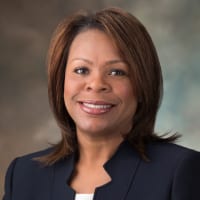
Ingrid Sampson is the Director of Program Management Subcontracts for Training and Logistics Solutions, a line of business within Lockheed Martin Rotary and Mission Systems. In this role, Mrs. Sampson is responsible for delivering training, simulators and logistics solutions valued at more than $3 billion. This includes developing and implementing a supply chain strategy to address the entire supply chain life cycle. Her team of more than 100 employees, across multiple locations, manages both domestic and international suppliers. Previously, Mrs. Sampson served as Director of Ethics and Business Conduct for Lockheed Martin Aeronautics responsible for the execution and development of the Ethics strategic plan for more than 24,000 employees. Mrs. Sampson has held other leadership positions within Lockheed Martin on the C-130, P-3, and the F-22 Programs. Mrs. Sampson holds a bachelor’s degree in psychology from California State Long Beach and a master’s degree in project management. Connect with Ingrid on LinkedIn.
